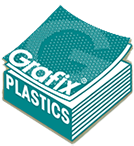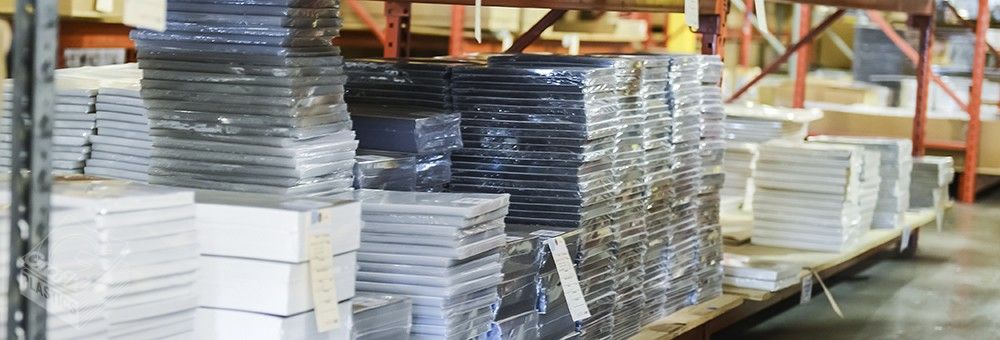Welcome to our extensive Plastic Sheet and Film information directory. Here we have answers to many of your questions regarding our products and services beyond the specifics listed in the Products and Services sections of this web site.
Most-frequent Plastics FAQs
Our products at a glance
Grafix Plastics offers a huge variety of plastic film and plastic sheets products. These products are available in varying thicknesses and finishes, for a wide ...
What are plastic sheets?
Plastic Sheets are defined as a continuous form of plastic material, that is thicker than .010" (.25mm) and usually wound up on a core, but ...
What is Acetate?
What is Acetate film and acetate sheet? Many people use the term “acetate film” to generically refer to plastic film. However, acetate film is really ...
What is Mylar® Plastic Film?
Mylar is often used to generically refer to polyester film or plastic sheet. However, it is a registered trademark owned by Dupont Tejjin Films for ...
What is plastic film?
Plastic film is defined as a continuous form of plastic material, that is thin and usually wound up on a core, or cut into sheets ...
What is Vinyl (PVC) Film?
What is Vinyl (PVC) film and vinyl sheet? Vinyl, otherwise known as polyvinyl chloride, or PVC, is a thermoplastic material, which means that it can ...
What material do I need?
Very often people use generic terms to describe specific types of plastic film. There are many types of plastic materials, with a wide range of ...
Commodity Plastics FAQs
Acetate
Can acetate film and sheets be recycled?
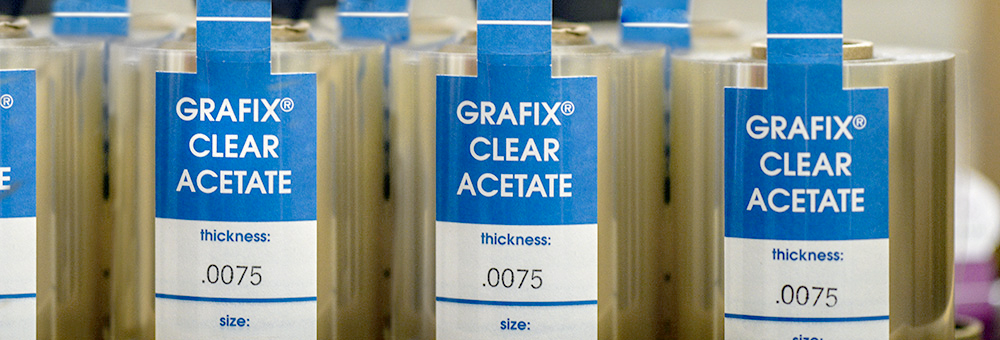
Can acetate film and sheets be recycled? Yes it can, right along with paper, because it is a polymer made from wood pulp and cotton linters. There is no specific recycling symbol for acetate polymer. So feel free to recycle it with any of your paper products.
Does acetate film and sheets resist tearing?

Does acetate film and sheets resist tearing? Yes, in one direction. It’s very hard to tear acetate film in the direction perpendicular to the unwind direction. Acetate will tear very easily in the unwind direction.
Is our acetate film and sheets biodegradable?
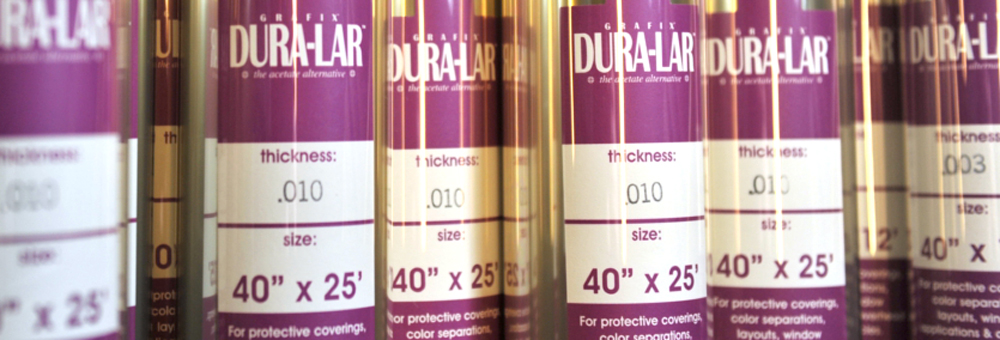
Is our acetate film and sheets biodegradable? Yes, it is. Acetate is made from cotton linters and wood pulp. So when put under conditions like composting, it will break down. Check out the spec sheet on our acetate film for more details.
Additionally, our acetate film and sheets can be recycled with paper.
Does acetate film and sheet products have good insulation properties?

Does acetate film and sheet products have good insulation properties? Yes. But not as good as those of polyester film products. Acetate is not as heat- resistant as polyester film, but holds up very well in cold temperatures.
Do Acetate film and sheets have good electrical properties?

Do Acetate film and sheets have good electrical properties? No, mostly because of acetate’s low melting point. Because electricity generates heat, you want to keep this material away from elevated temperatures. For electrical applications, we recommend our Hazy DuraLar™ polyester film products.
Please contact us today and we can help you with your requirements.
Are acetate film and sheet approved for direct and indirect skin contact?

Are acetate film and sheet approved for direct and indirect skin contact? Although acetate is perfectly safe for direct and indirect skin contact, it is not certified as such.
Are our acetate film and sheet products approved for food contact?

Are our acetate film and sheet products approved for food contact? Yes! This entire product line is suitable for use in con-tact with foodstuffs. It complies with FDA, Code of Federal Regulations, Title 21 (revised April 1995). Need us to provide a certification? No problem. Just let us know when you contact us to discuss your requirements.
Is acetate film and sheets suitable for outdoor use?

Is acetate suitable for outdoor use? No. We do not recommend using acetate outside, especially for extended durations, because, over time, acetate film tends to swell and shrink with changes in atmospheric humidity. Also, long term exposure to sunlight will eventually cause it to yellow and become brittle. For very short term use (a few days), it should be alright, but beyond that, we can’t recommend its use outdoors. The best products that we stock for outdoor use are HDPE and polypropylene.
What is the heat resistance of Acetate?

What is the heat resistance of Acetate film and sheets? Acetate starts to soften at 100C/210F. The film will soften very evenly which makes Acetate ideal for thermoforming and heat sealing application.
If you need an excellent high clarity film that is more heat resistant than acetate, please checkout our Clear DuraLar film and sheet products.
Is Acetate an archival grade film?

Is Acetate an archival grade film? Yes! A pH neutral film, Acetate is breathable, which means it will allow air and moisture to pass through it, making it ideal for storage applications. It will not outgas materials and it can be welded to itself. It is also a clarity film, with optical transmission > 90% and very low haze.
Looking for a good “archival” grade film that is more of a barrier? Try our Archival Duralar™ product line,which meets the Library of Congress’ specifications for archival polyester film.
Can I use Acetate Outdoors?

We do not recommend using Acetate for long term outdoor applications. Stock versions of this film do not contain any UV inhibitors, so when exposed to UV rays over long periods, the film will become brittle and lose its properties. Temporary exposure should not pose significant problems. For longer term outdoor exposure applications, you may want to consider some of our other film products such as HDPE and Polypropylene sheets. Please contact a sales rep for additional information.
How can Acetate be Printed on?

Acetate film is not designed specifically to be printed. However, it can be Screen Printed, Pad Printed, Thermal Printed and Commercial Inkjet printed (Solvent, UV and EcoSolvent inks). It may work with offset lithography or flexographic methods but it will depend on your ink systems. We recommend that you contact your ink vendor to see what types of inks can be used with Acetate. We can provide samples to have ink draws and tests done by your ink vendor. If you're looking for digitally printable films, please check out our ComputerGrafix section.
ClearLay™
Can any of our Vinyl film or sheets products be recycled?

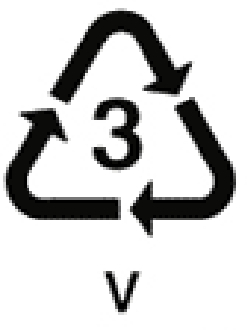
Can any of our Vinyl film or sheets products be recycled? Yes it can, as long as it’s recycled with other PVC resin materials. ClearLay, Flexible Vinyl, and Grafix Cling Film can all be recycled with materials that have this symbol on them.
Does ClearLay™ vinyl film and sheets resist tearing?

Does ClearLay™ viny film and sheets resist tearing? Yes, it does. ClearLay offers quite a bit of durability as well. You know that annoying clamshell packaging that is so hard to tear? That’s ClearLay.
For more information, contact us with your requirements.
Are any of our PVC – Vinyl based film and sheets biodegradable?

Are any of our PVC - Vinyl based film and sheets biodegradable? No, they are not. The only bio-degradable film product we offer is acetate film and sheets.
Does ClearLay™ vinyl film have good insulation properties?

Does ClearLay™ vinyl film have good insulation properties? Yes, at colder temperatures. Like other vinyl polymers, ClearLay is not very resistant to high temperatures, but it excels in low tempera-ture applications. ClearLay can be cooled down to -40 degrees Fahrenheit and still maintain its properties.
Does Clearlay™ vinyl film and sheets have good electrical properties?

Does Clearlay™ vinyl film and sheets have good electrical properties? No, mostly because of ClearLay’s low melting point. Because electricity generates heat, you want to keep this material away from elevated temperatures. For electrical applications, we recommend our Hazy DuraLar™ polyester film products.
Please contact us today and we can help you with your requirements.
Is ClearLay™ vinyl film and sheets approved for direct and indirect skin contact?

Is ClearLay™ vinyl film and sheets approved for direct and indirect skin contact? Although ClearLay is perfectly safe for direct and indirect skin contact, it is not certified as such.
Are ClearLay™ vinyl film and sheets food-safe?

Are ClearLay™ vinyl film and sheets food-safe? No. Grafix stocks other types of film products that are, including acetate, specific brands and grades of polyester film, HDPE and polypropylene. Other types food-safe films are available as a custom order; larger pro-duction minimums may apply.
What is the heat resistance of ClearLay vinyl film and sheets?

What is the heat resistance of ClearLay vinyl film and sheets? ClearLay starts to soften at 85C/180F. The film will soften very evenly, which makes it the perfect film for thermoforming, blister packaging, and clam shell packaging.
If you need an excellent high clarity film that is more heat resistant than ClearLay, please check out our Clear DuraLar™ film and sheet products.
Is ClearLay™ vinyl film and sheets archival?

Is ClearLay™ vinyl film and sheets archival? No. Over a very long time, PVC, including ClearLay, can get brittle and break down. Even though our ClearLay product is pH neutral, and can be easily welded to itself, it can out gas materials. We can not recommend this product for long term archival storage solutions.
How will you be using this film in an archival application? If you need a good, long term, “archival” grade film, try our Archival Dural™r product line, which meets the Library of Congress’ specifications for archival polyester film.
Can ClearLay Vinyl Sheets be Used Outdoors?

We do not recommend using our stock ClearLay vinyl film and sheets for outdoor applications. Although they may be suitable for short term projects, they not geared to tolerate extreme temperatures or sunlight. Long term exposure to the elements can cause the material to yellow, become brittle or turn hazy. The best product that we stock for outdoor use is HDPE and Polypropylene. However, it is possible for us to custom source formations of Vinyl that is designed to last outdoors for a specific period of time. Many outdoor sign materials are made out of vinyl designed to last 5 years or more. Please contact us for more information.
DuraLar™ Polyester
DuraLar Thermoformability
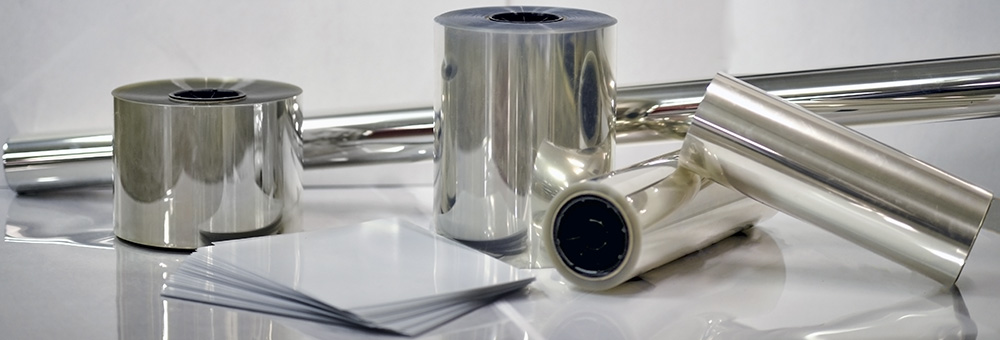
Can DuraLar be thermoformed? Not really, we can not recommend any of our grades of Duralar for thermoforming applications. Because of it's higher heat tolerance, and bi-axial crystaline structure, it is not the best choice for thermoforming applications. It's not impossible but we don't know many folks using DuraLar for this application.
Check out some of our other plastic film and sheet products which are better suited for thermoforming.
We can also provide PET/G, Nylon, ABS, and other thermoformable plastic sheeting on a custom basis.
Please contact us today so we can help you find the material you need for thermoforming.
Our experts are ready to help make your job easy! Please contact us with your requirements today by clicking start an inquiry.
DuraLar Biodegradability

Is DuraLar Biodegradable? No. None of our grades of Duralar polyester film is biodegradable! Although it can be recycled through a variety of recycling processes. At Grafix Plastics, we take your polyester film scraps and recycle it, thus avoiding landfill.
If you looking for a biodegradable film, check out:
Contact us for more help on locating a material that works right for you. Please contact us with your requirements today by starting an inquiry.
Is DuraLar Food Safe?
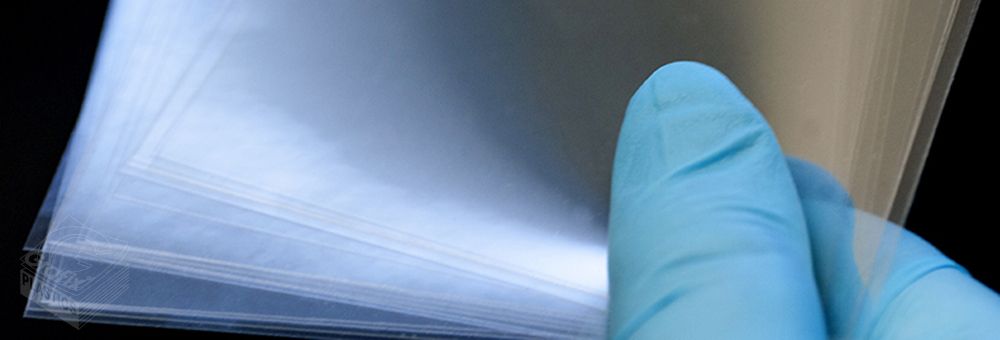
Duralar is not certified for contact with food. Grafix stocks other products that are FDA certified such as Acetate, Specific Grades of Polyester Film, HDPE & Polypropylene. Other food safe films are available to special order but will be subject to larger production minimums. Contact us today with your requirements, and let us try and help you locate what you need.
DuraLar outdoor suitability
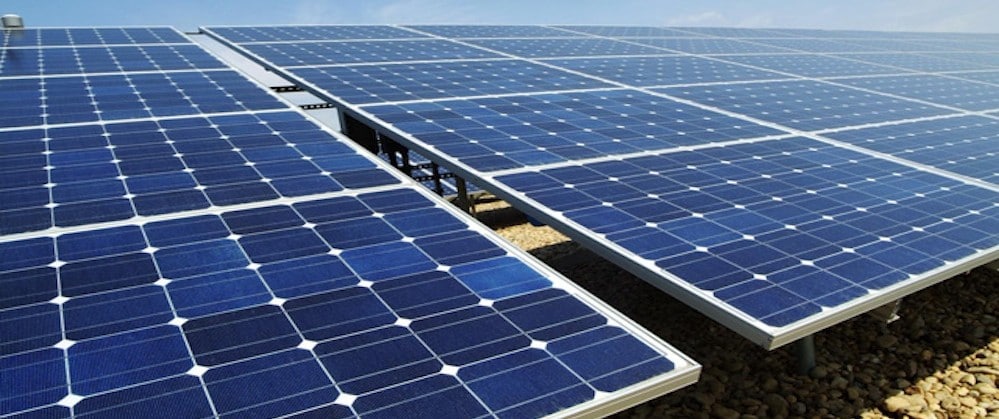
Is Clear DuraLar suitable for outdoor use? In the short term (less than 1 year), yes. For more than that, we do not recommend using Duralar for long term outdoor exposure. Long term exposure to the elements can cause the film to yellow, become brittle or turn hazy. The longer DuraLar stays outside, exposed to UV, the more can loose it's properties.
DuraLar can be custom manufactured to be UV resistant, however, production quantity minimum orders will apply.
The best Plastic Film products that we stock for outdoor use is HDPE and Polypropylene.
Our experts are ready to help make your job easy! Please contact us with your requirements today by starting an inquiry.
– Archival DuraLar™
Can Archival DuraLar™ film be recycled?

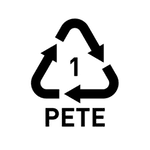
Yes, Archival DuraLar™ film can be recycled, as long as it’s recycled with other polyester resin materials that have the PETE recycling symbol.
Do any of our polyester film and sheet based products, such as DuraLar, Mylar® plastic film, and others, resist tearing?

Do any of our polyester film and sheet based products, such as DuraLar, Mylar® brand and others, resist tearing? Yes, they do. Polyester film is one of the most tear-resistant materials we offer.
For more information on how DuraLar can work for your particular application, please contact us with your requirements.
Are any of our polyester film and sheet based products, such as DuraLar, Mylar® plastic film, and others, biodegradable?

Are any of our polyester film and sheet based products, such as DuraLar, Mylar® brand, and others, biodegradable? No, they are not. The only biodegradable film product we offer is acetate film and sheets.
Does Archival DuraLar™ film and sheets have good insulation properties?

Does Archival DuraLar™ film and sheets have good insulation properties? Yes, because of its combination of thermal and barrier properties. As a matter of fact, all polyester films have very good insulation properties. If you’re looking for a product that is optimized for insulation applications, try our Metallized DuraLar™ film products.
Does Archival DuraLar™ film and sheets have good electrical properties?

Does Archival DuraLar™ film and sheets have good electrical properties? Yes! Archival DuraLar’s combination of resistive, thermal and chemical properties make it an excellent archival film to be used in direct and indirect applications. For more demanding electrical applications like wiring, motor windings, driver electronics, and circuit board construction, our Hazy DuraLar™ is optimized for electrical applications, and is certified to UL VTM-2 electrical standards.
Please see the Archival and Hazy DuraLar spec sheets for specifics.
Is Archival DuraLar™ certified for direct and indirect skin contact?

Is Archival DuraLar™ certified for direct and indirect skin contact? Although Archival DuraLar is perfectly safe for direct and indirect skin contact, it is not certified as such.
Is Archival DuraLar™ approved for direct food contact?

Is Archival DuraLar™ approved for direct food contact? No. Grafix stocks other types of film products that are, includ-ing acetate, specific brands and grades of polyester film, HDPE and polypropylene. Other types food-safe films are available as a custom order; larger production minimums may apply.
Is Archival Duralar™ suitable for outdoor use?

Is Archival Duralar™ suitable for outdoor use? No! Over time, UV light will cause the film to turn yellow and become brittle.
If you do have a need for some type of material to provide outdoor protection, please contact us to discuss your requirements.
What is the heat resistance of Archival DuraLar?

What is the heat resistance of Archival DuraLar™? Archival DuraLar will begin to soften at about 150C/300F. When DuraLar softens, it begins to lose its orientation; it gets wavy and begins to shrink. So if your film will only be exposed to a heat environment below 150C/300F, archvial DuraLar is a good choice.
Need to thermoform? Polyester films like archvial DuraLar don’t thermoform too well because of their crystalline structure. Try our Clearlay, Acetate, HDPE and Polypropylene sheets and film for your thermoforming applications.
– Clear DuraLar™
Can Clear DuraLar™ polyester film and sheets be recycled?

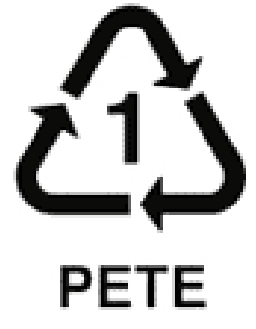
Can Clear DuraLar™ polyester film and sheets be recycled? Yes it can, as long as it’s recycled with other polyester resin materials. Clear DuraLar™ polyester film and sheets can be recycled with any other materials that have this symbol.
Do any of our polyester film and sheet based products, such as DuraLar, Mylar® plastic film, and others, resist tearing?

Do any of our polyester film and sheet based products, such as DuraLar, Mylar® brand and others, resist tearing? Yes, they do. Polyester film is one of the most tear-resistant materials we offer.
For more information on how DuraLar can work for your particular application, please contact us with your requirements.
Are any of our polyester film and sheet based products, such as DuraLar, Mylar® plastic film, and others, biodegradable?

Are any of our polyester film and sheet based products, such as DuraLar, Mylar® brand, and others, biodegradable? No, they are not. The only biodegradable film product we offer is acetate film and sheets.
Does Clear DuraLar™ polyester film and sheets have good insulation properties?

Does Clear DuraLar™ polyester film and sheets have good insulation properties? Yes, because of its combination of thermal and barrier properties. As a matter of fact, all polyester films have very good insulation properties. If you need a product that is optimized for insulation applications, check out our Metallized DuraLar™ film products.
Does Clear DuraLar™ film and sheets have good electrical properties?

Does Clear DuraLar™ film and sheets have good electrical properties? Yes! Clear DuraLar’s combination of resistive, thermal and chemical properties make it an excellent clear film to be used in direct and indirect electrical applications. For more demanding electrical applications like wiring, motor windings, driver electronics, and circuit board construction, our Hazy DuraLar is optimized for electrical applications, and is certified to UL VTM-2 electrical standards.
Please see the Clear and Hazy DuraLar spec sheets for specifics.
Is Clear DuraLar™ film and sheets certified for direct and indirect skin contact?

Is Clear DuraLar™ film and sheets certified for direct and indirect skin contact? Although Clear DuraLar is perfectly safe for direct and indirect skin contact, it is not certified as such. Need polyester film that is certified for direct skin contact? Let us know and we can source that for you. Minimum order requirements will apply.
Is Clear DuraLar™ approved for direct food contact?

Is Clear DuraLar™ approved for direct food contact? No. Grafix stocks other types of film products that are, including acetate, specific brands and grades of polyester film, HDPE and polypropylene. Other types food-safe films are available as a custom order; larger production minimums may apply.
Is Clear DuraLar™ film and sheets suitable for outdoor use?

Is Clear DuraLar™ film and sheets suitable for outdoor use? For less than one year? Yes. For longer term exposure? No. Long term exposure to the outdoors, especially to ultraviolet light, can cause the Clear DuraLar to yellow, become brittle, and turn hazy. Clear DuraLar can be custom manufactured to be UV resistant; production quantity minimums will apply to your order.
For film and sheets that perform better under longer term out-door or UV exposure conditions, check out our HDPE and polypropylene sheets.
What is the heat resistance of Clear DuraLar?

What is the heat resistance of Clear DuraLar? Clear DuraLar will begin to soften at about 150C/300F. When DuraLar softens, it begins to lose its orientation; it gets wavy and begins to shrink.
Need to thermoform? Polyester films like Clear DuraLar don’t thermoform too well because of their crystalline structure. Try our Clearlay, Acetate, HDPE and Polypropylene sheets and film for your thermoforming applications.
Is Clear DuraLar™ archival?

Is Clear DuraLar™ archival? Yes and no. There are three aspects that go into determining whether a polyester film is actually archival grade: 1- whether it is pH neutral, 2- whether or not the film will impact what it comes in contact with, and 3- whether it can be sonically welded to itself. Clear DuraLar is pH neutral, and will not stick or transfer to other surfaces. Unfortunately, it is not treated so that it may be sonic-ally welded to itself.
How will you be using this film in an archival application? If you only need a high clarity, pH neutral film, Clear DuraLar is an excellent choice. If you also need to sonically weld the film, try our Archival Duralar™ product line, which meets the Library of Congress’ specifications for archival polyester film.
– Hazy DuraLar™
Can Hazy DuraLar™ polyester film and sheets be recycled?
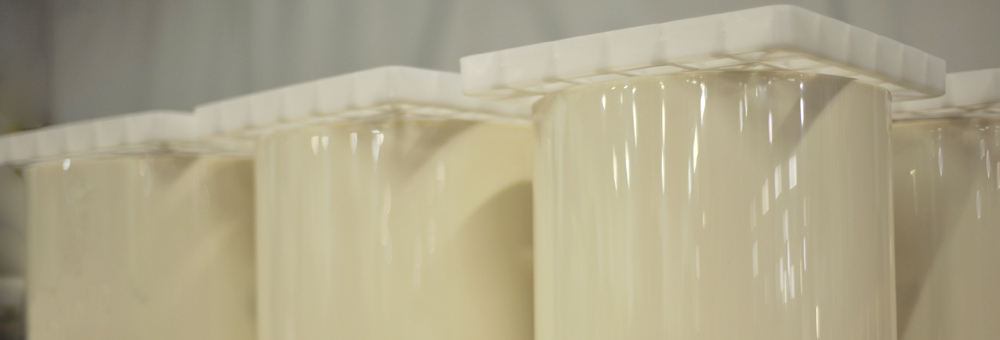

Yes they can – as long as they are recycled with other polyester resin materials. Hazy DuraLar™ polyester film and sheets can be recycled with any other materials that have the PETE recycling symbol.
Do any of our polyester film and sheet based products, such as DuraLar, Mylar® plastic film, and others, resist tearing?

Do any of our polyester film and sheet based products, such as DuraLar, Mylar® brand and others, resist tearing? Yes, they do. Polyester film is one of the most tear-resistant materials we offer.
For more information on how DuraLar can work for your particular application, please contact us with your requirements.
Are any of our polyester film and sheet based products, such as DuraLar, Mylar® plastic film, and others, biodegradable?

Are any of our polyester film and sheet based products, such as DuraLar, Mylar® brand, and others, biodegradable? No, they are not. The only biodegradable film product we offer is acetate film and sheets.
Does Hazy DuraLar™ film and sheets have good insulation properties?
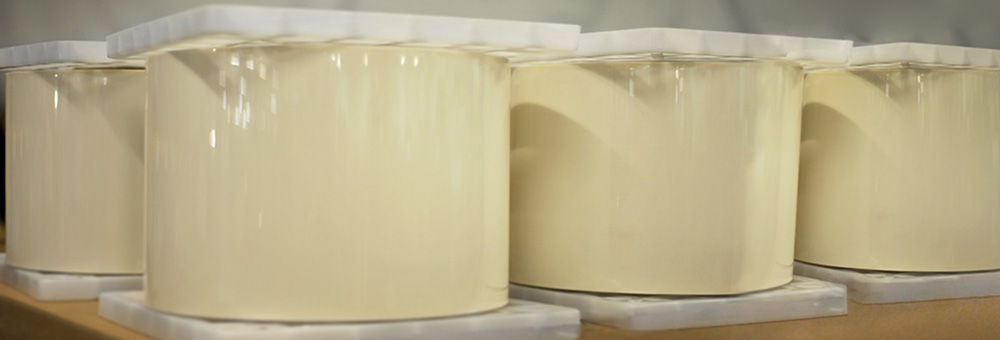
Do Hazy DuraLar™ film and sheets have good insulation properties? Yes, due to Duralar's combination of thermal and barrier properties. As a matter of fact, all polyester films have very good insulation properties. If you’re looking for a product that is optimized for insulation applications, your best bet is Metallized DuraLar film.
Does Hazy DuraLar™ polyester film have good electrical properties?

Does Hazy DuraLar™ polyester film have good electrical properties? Yes! Its combination of resistive, thermal, and chemical properties make it an excellent film to be used in direct and indirect electrical ap-plications, like wiring, motor windings, driver electronics, and circuit board construction. It is also certified to UL VTM-2 flame resistance standards.
Is Hazy DuraLar™ film and sheets approved for direct skin contact?

Is Hazy DuraLar™ film and sheets approved for direct skin contact? Although Hazy DuraLar is perfectly safe for direct and indirect skin contact, it is not certified as such.
None of our stock films have this certification, however we can source an appropriate film for this sort of application, if need be.
Contact us today with your requirements, and let us try and help you locate what you need.
Is Hazy DuraLar™ approved for direct food contact?

Is Hazy DuraLar™ approved for direct food contact? No. Grafix stocks other types of film products that are, including acetate, specific brands and grades of polyester film, HDPE and polypropylene. Other types food-safe films are available as a custom order; larger production minimums may apply.
Is Hazy DuraLar™ film and sheets suitable for outdoor use?

Is Hazy DuraLar™ film and sheets suitable for outdoor use? It depends on how long you plan to use it outdoors. For less than one year? Yes, Hazy DuraLar is suitable for outdoor use. For longer term exposure? No. Long-term exposure to the outdoor elements, especially UV light, can cause Hazy DuraLar to yellow, and become brittle. Hazy DuraLar can be custom manufactured to be UV-resistant; production quantity minimums will apply
For a product that holds up well for the long term under outdoor conditions, or UV exposure, check out our HDPE and polypropylene sheets.
What is the heat resistance of Hazy DuraLar?
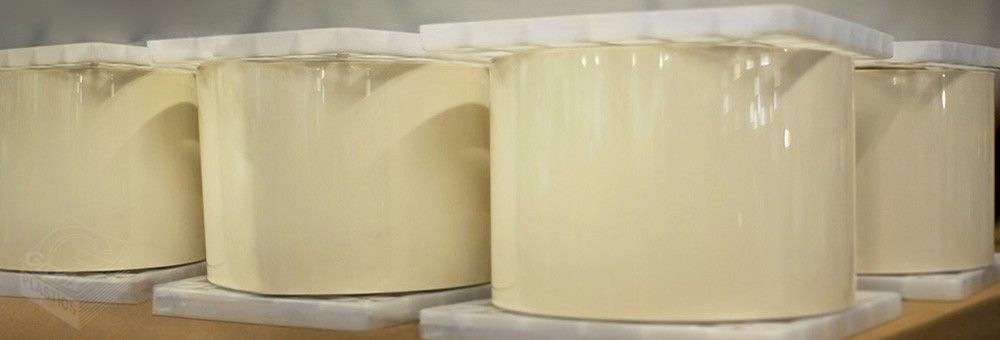
What is the heat resistance of Hazy DuraLar™ film and sheets. Hazy DuraLar will begin to soften at about 150C/300F. When DuraLar softens, it begins to lose its orientation; it gets wavy and begins to shrink. So if your film will only be exposed to a heat environment below 150C/300F, Hazy DuraLar is a good choice.
Need to thermoform? Polyester films like Hazy DuraLar don’t thermoform too well because of their crystalline structure. Try our Clearlay, Acetate, HDPE and Polypropylene sheets and film for your thermoforming applications.
Is Hazy DuraLar™ archival?

Is Hazy DuraLar™ archival? Yes and no. There are three aspects that go into determining whether a polyester film is actually archival grade: 1- whether it is pH neutral, 2- whether or not the film will impact what it comes in contact with, and 3- whether it can be sonically welded to itself. Hazy DuraLar is a pH neutral polyester film that will not stick or transfer to other surfaces. However, it is not treated so that it may be sonically welded to itself. Further Hazy DuraLar is a translucent film, and generally high clarity films are used in archival applications.
How will you be using this film in an archival application? If you only need a pH neutral film, Hazy DuraLar is an excellent choice. If you also need to sonically weld the film, try our Archival Duralar™ product line, which meets the Library of Congress’ specifications for archival polyester film.
– Metallized DuraLar™
Can metallized DuraLar™ polyester film be recycled?
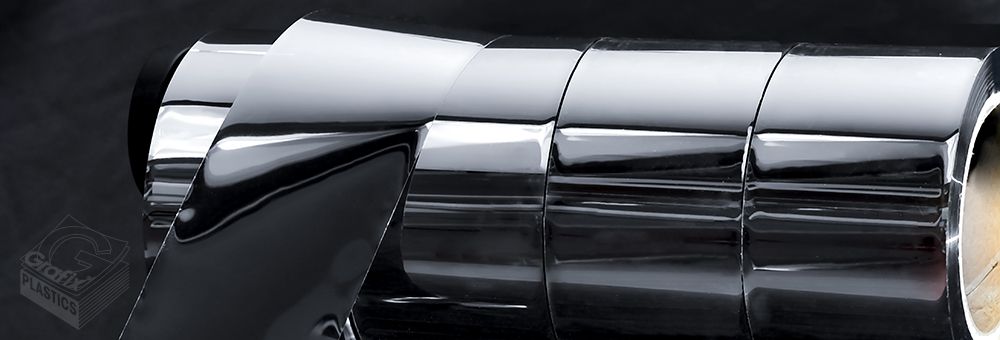
Can Metallized DuraLar™ polyester film be recycled? No, not in the traditional sense. The metallized coating on this film is a contaminant that will fowl up the recycling process.
Do any of our polyester film and sheet based products, such as DuraLar, Mylar® plastic film, and others, resist tearing?

Do any of our polyester film and sheet based products, such as DuraLar, Mylar® brand and others, resist tearing? Yes, they do. Polyester film is one of the most tear-resistant materials we offer.
For more information on how DuraLar can work for your particular application, please contact us with your requirements.
Are any of our polyester film and sheet based products, such as DuraLar, Mylar® plastic film, and others, biodegradable?

Are any of our polyester film and sheet based products, such as DuraLar, Mylar® brand, and others, biodegradable? No, they are not. The only biodegradable film product we offer is acetate film and sheets.
Does Metallized DuraLar™ reflective film have good insulation properties?

Does Metallized DuraLar™ reflective film have good insulation properties? Yes! Its combination of thermal and barrier properties make it an excellent film for many thermal insulation applications. Its metal coating also acts as a barrier enhancement, while reflecting in-frared radiation. All polyester films have very good insulation properties; Metallized DuraLar takes that performance to the next level.
Does Metallized DuraLar™ film have good electrical properties?

Does Metallized DuraLar™ film have good electrical properties? Depending on what electrical properties you need. Metallized DuraLar is made from our Clear DuraLar base film. So the film itself has excellent resistive electrical properties (acting as an insulator). The metal-coated side of the film is very conductive. With Metallized DuraLar you get the best of both worlds. If that’s what you want.
Is Metallized DuraLar™ film approved for direct skin contact?

Is Metallized DuraLar™ film approved for direct skin contact? Although Metallized DuraLar is perfectly safe for direct and indirect skin contact, it is not certified as such.
Is Metallized DuraLar™ approved for direct food contact?

Is Metallized DuraLar™ approved for direct food contact? No, it is not. Grafix regularly carries other types of film products that are approved, including acetate, specific brands and grades of polyester film, HDPE and polypropylene. Unfortunately most of these materials are available with a metallized coating. Other types food-safe films are available as a custom order; larger pro-duction minimums may apply.
Is Metallized DuraLar™ suitable for outdoor exposure?

Is Metallized Duralar™ suitable for outdoor use? No. If sub-jected to sun and rain, the aluminum metal level on top of the film will corrode and fade quickly. This is not an appropriate film for outdoor use.
Looking for film products that perform well under longer term outdoor or UV exposure? Check out our HDPE and Polypropylene product pages.
What is the heat resistance of Metallized DuraLar film and sheets?

What is the heat resistance of Metallized DuraLar™ film and sheets? Metallized DuraLar will begin to soften at about 150C/300F. When Metallized DuraLar softens, it begins to lose its orientation; the metal coating will crack, and the film gets wavy and begins to shrink. So if your film will only be exposed to a heat environment below 150C/300F, Metallized DuraLar is a good choice.
Need to thermoform? Polyester films like Metallized DuraLar don’t thermoform too well because of their crystalline structure. Try our Clearlay, Acetate, HDPE and Polypropylene sheets and film for your thermoforming applications.
Is Metallized DuraLar™ archival?

Is Metallized DuraLar™ archival? No. There are three aspects that go into determining whether a polyester film is actually archival grade: 1- whether it is pH neutral, 2- whether or not the film will impact what it comes in contact with, and 3- whether it can be sonically welded to itself. Metallized DuraLar is a pH neutral polyester film that will not stick or transfer to other surfaces. However, metallized DuraLar is not treated so that it may be sonically welded to itself, and its aluminum metal coating will oxidize over time.
How will you be using this film in an archival application? If you need a good archival grade film, try our Archival Duralar™ product line, which meets the Library of Congress’ specifications for archival polyester film.
Flexible PVC
Can any of our Vinyl film or sheets products be recycled?


Can any of our Vinyl film or sheets products be recycled? Yes it can, as long as it’s recycled with other PVC resin materials. ClearLay, Flexible Vinyl, and Grafix Cling Film can all be recycled with materials that have this symbol on them.
Does flexible PVC film resist tearing?
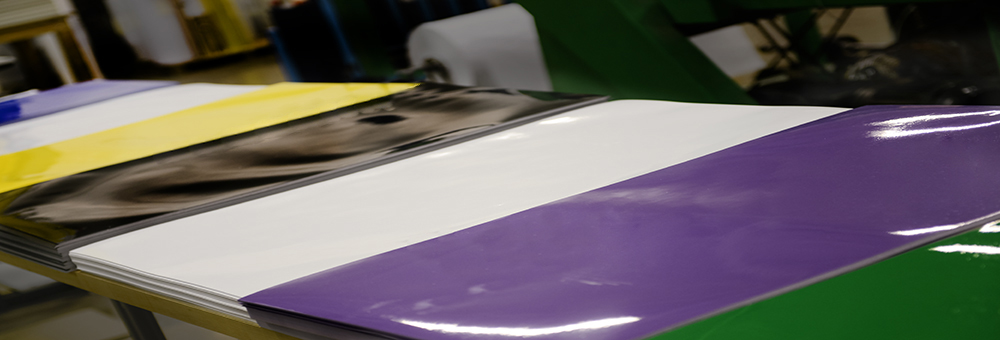
Does flexible PVC film resist tearing? Sort of. Flexible PVC film will stretch quite a bit before it breaks.For more information, contact us with your requirements
Are any of our PVC – Vinyl based film and sheets biodegradable?

Are any of our PVC - Vinyl based film and sheets biodegradable? No, they are not. The only bio-degradable film product we offer is acetate film and sheets.
Does flexible PVC film and sheets have good insulation properties?

Does flexible PVC film and sheets have good insulation properties? Yes. Flexible PVC is a vinyl polymer. It’s not as resistant to high temperatures, but it excels in low temperature applications. In fact, vinyl films are widely used in refrigeration units.
Does flexible PVC film have good electrical properties?

Does flexible PVC film have good electrical properties? No, mostly because of its low melting point. Electricity generates heat, and you want to keep this material away from elevated temperatures to keep it from melting. For electrical applications, we recommend our Hazy DuraLar™ polyester film products.
Please contact us today and we can help you with your requirements.
Is flexible vinyl ( PVC ) film approved for direct and indirect skin contact?

Is flexible vinyl ( PVC ) film approved for direct and indirect skin contact? Although flexible PVC is perfectly safe for direct and indirect skin contact, it is not certified as such.
Are flexible PVC (vinyl) film and sheets food-safe?

Are flexible PVC (vinyl) film and sheets food-safe? No. Grafix stocks other types of film products that are food-safe, including acetate, specific brands and grades of polyester film, HDPE and polypropylene. Other types food-safe films are available as a custom order; larger production minimums may apply.
Are flexible PVC film and sheets suitable for outdoor applications?

Are flexible PVC film and sheets suitable for outdoor applications? No! Although they may be suitable for some shorter term outdoor projects, they do not tolerate high temperatures or excessive exposure to UV light. Long term exposure to the elements can cause the material to yellow, become brittle or turn hazy.
The best products we stock for outdoor use are HDPE and polypropylene. However, it is possible for us to custom source formations of vinyl designed to last outdoors for a specific period of time. Many outdoor sign materials are made out of vinyl designed to last five years or more: Please contact us for more information.
What is the heat resistance of flexible PVC film and sheets?

What is the heat resistance of flexible PVC film and sheets? Flexible PVC film starts to soften at 60C/140F. This is due to its plasticizer content. The softer the film, the more plasticizer, the lower temp it melts at. So if your film will only be exposed to a heat environment below 60C/140F, flexible PVC film is a good choice.
If you need a great film that will resist more heat than that, virtually all of our other plastic film products have a higher softening point. Check out DuraLar, Clearlay, Acetate, HDPE and Polypropylene film and sheet products.
Is Flexible PVC film archival?

Is Flexible PVC film archival? No. Flexible PVC film is loaded with plasticizers, to make the PVC soft and flexible. These plasticizers can outgas from the film over time, making Flexible PVC inappropriate as a long term archival storage solution.
How will you be using this film in an archival application? If you need a good archival grade film, try our <Link: Archival Duralar product line>,which meets the Library of Congress’ specifications for archival polyester film.
What does “Hand” mean?

The term "Hand" is used to describe how something feels to the human touch. The term is widely used in the fabric industry, but with respect to Vinyl Film and Vinyl Sheets, it means how hard or soft the Vinyl Film or Vinyl Sheets are.
Descriptions of different "Hand" ratings:
| Hand | Characteristic |
|---|---|
| 5H | Extra Firm |
| 4H | Extra Firm |
| 3H | Semi Rigid |
| 2H | Medium Firm |
| 1.5H | Medium Firm |
| H | Medium Firm |
| S | Medium Soft |
| 1.5S | Medium Soft |
| 2S | Soft |
| 2.5S | Soft |
| 3S | Soft |
| 6S | Soft, Naturally High Tack |
For more information on Flexible Vinyl Film and Sheets, please contact us today!
Can Flexible Vinyl Sheets be Used Outdoors?

We do not recommend using our flexible vinyl film and sheets for outdoor applications. Although they may be suitable for short term projects, they not geared to tolerate extreme temperatures or sunlight. Long term exposure to the elements can cause the material to yellow, become brittle or turn hazy. The best product that we stock for outdoor use is HDPE and Polypropylene. However, it is possible for us to custom source formations of Vinyl that is designed to last outdoors for a specific period of time. Many outdoor sign materials are made out of vinyl designed to last 5 years or more. Please contact us for more information.
Grafix Cling Vinyl
Can any of our Vinyl film or sheets products be recycled?


Can any of our Vinyl film or sheets products be recycled? Yes it can, as long as it’s recycled with other PVC resin materials. ClearLay, Flexible Vinyl, and Grafix Cling Film can all be recycled with materials that have this symbol on them.
Does Cling vinyl film resist tearing?
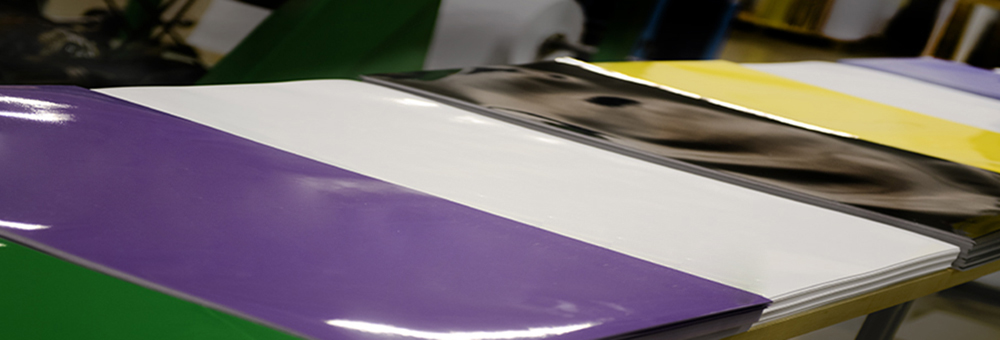
Does Cling vinyl film resist tearing? Sort of. Cling PVC film will stretch quite a bit before it breaks. See the elongation specification under the specs tab of the product sheet.
Are any of our PVC – Vinyl based film and sheets biodegradable?

Are any of our PVC - Vinyl based film and sheets biodegradable? No, they are not. The only bio-degradable film product we offer is acetate film and sheets.
Does Cling vinyl film have good insulation properties?

Does Cling PVC vinyl film have good insulation properties? Yes. Cling PVC film is a vinyl polymer. It’s not as resistant to high temperatures as polyester films, but vinyl excels in low temperature applications. In the case of Cling, it is possible that extreme low temperatures could cause the film to loose its “tack” and become less sticky. But that should not affect its insulation properties.
Does Cling vinyl film have good electrical properties?

Does Cling vinyl film have good electrical properties? No, mostly because of Cling PVC’s low melting point. Electricity generates heat, and you want to keep this material away from elevated temperatures because of that low melting point. For electrical applications, we recommend our Hazy DuraLar™ polyester film products.
Please contact us today and we can help you with your requirements.
Is Cling vinyl film approved for direct and indirect skin contact?

Is Cling vinyl film approved for direct and indirect skin contact? Although Cling vinyl is perfectly safe for direct and indirect skin contact, it is not certified as such.
Is Cling vinyl film food-safe?
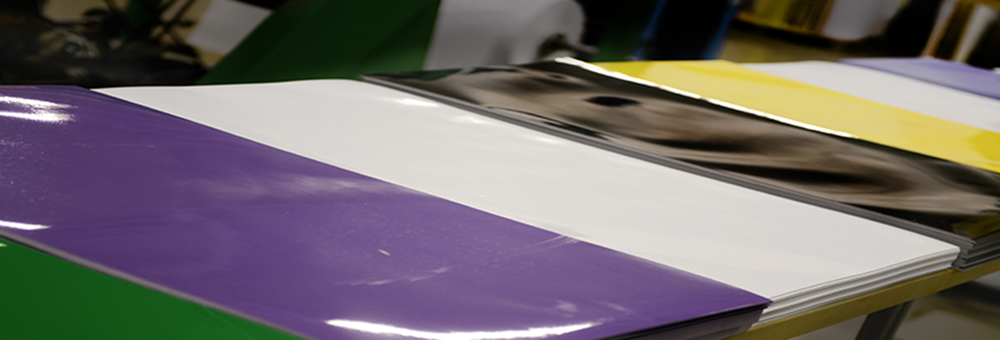
Is Cling vinyl film food-safe? No, they are not. Grafix stocks other types of film products that are, including acetate, specific brands and grades of polyester film, HDPE and polypropylene. Other types food-safe films are available as a custom order; larger production minimums may apply.
Is Cling vinyl film suitable for outdoor applications?

Is Cling vinyl film suitable for outdoor applications? No! Although it may be suitable for some shorter term outdoor projects, it does not tolerate high temperatures or exposure to excessive UV light. Long term exposure to the elements can cause the material to yellow, become brittle, or turn hazy. The best products we stock for outdoor use are HDPE and polypropylene. However, it is possible for us to custom source formations of vinyl that are designed to last outdoors for a specific period of time. Many outdoor sign materials are made out of vinyl designed to last five years or more: Please contact us for more information.
What is the heat resistance of Cling vinyl film?

What is the heat resistance of Grafix Cling vinyl film? Cling PVC film starts to soften at 60C/140F. This is due to its high plasticizer content. The softer the film, the more plasticizer, the lower temp it melts at. So if your film will only be exposed to a heat environment below 60C/140F, Cling PVC film is a good choice.
If you need a great film that will resist more heat than that, virtually all of our other plastic film products have a higher softening point. Check out DuraLar, Clearlay, Acetate, HDPE and Polypropylene film and sheet products.
Is Grafix Cling vinyl film archival?

Is Cling vinyl film archival? No. Cling PVC film is loaded with plasticizers, to make the PVC soft and flexible. These plasticizers can outgas from the film over time, making Cling PVC inappropriate for long term archival storage.
How will you be using this film in an archival application? If you need a good archival grade film for your long term storage needs, try our Archival Duralar™ product line, which meets the Library of Congress’ specifications for archival polyester film.
Can Static Cling Vinyl Sheets be used Outdoors?

We do not recommend using our stock Static Cling for outdoor applications. Although it may be suitable for short term projects, it is not geared to tolerate extreme temperatures or sunlight. Long term exposure to the elements can cause the film to yellow, become brittle and crack or turn hazy. Moisture will interrupt the bond between the film and the surface. There are specialty static cling films that can be special ordered to help prolong the life of the film in outdoor applications. Larger production minimums will apply. Contact us today to discuss your project.
Are Static Cling Vinyl Sheets Printable?

Our stock Static Cling vinyl sheets are not compatible for printing. Specific grades of static cling film are available for specific types of printing such as Screen Printing, and Offset Lithography. The only digital printing grades of cling film that are available are for inkjet printing and other low print methods. If you’re looking to print on static cling, please contact us to discuss your specific needs
HDPE (High Density Polyethylene)
Can HDPE sheets be recycled?
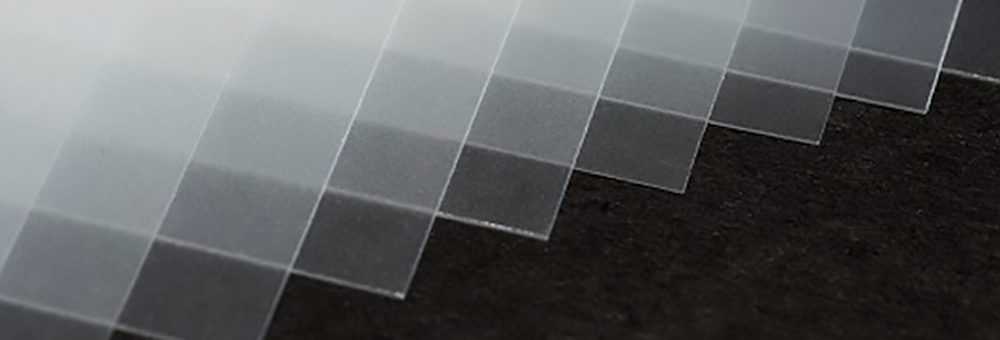
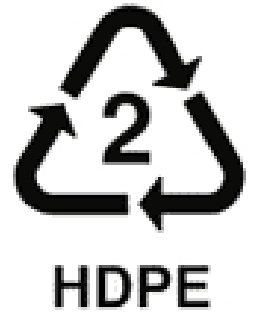
Can HDPE sheets be recycled? Yes they can, as long as they are recycled with other HDPE resin materials. HDPE sheets can be recycled with any other materials that have this symbol.
Do HDPE sheets resist tearing?

Do HDPE sheets resist tearing? Sort of. All Polyolefin sheets will stretch a bit before they break.
Are our HDPE and Polypropylene sheets biodegradable?
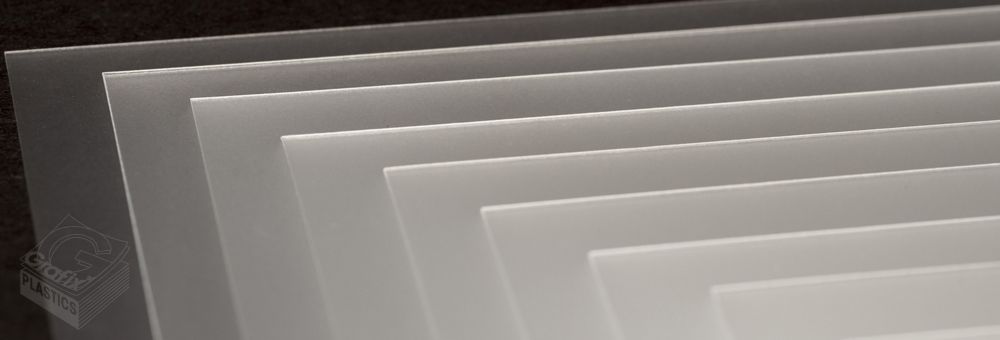
Are our HDPE and Polypropylene sheets biodegradable? No, they are not. The only biodegradable film product we offer is acetate film and sheets.
Do HDPE sheets have good insulation properties?

Do HDPE sheets have good insulation properties? Yes, but not as good as those of polyester film products. Because HDPE is a polyethylene polymer, it’s not as heat-resistant as polyester film. Where HDPE excels is in low temperature applications. HDPE can be cooled down to -100 degrees Fahrenheit without becoming brittle.
Do HDPE and Polypropylene sheets have good electrical properties?

Do HDPE and Polypropylene sheets have good electrical properties? No. Electricity generates heat, but because of polyolefin’s low melting point, you want to keep this material away from elevated temperatures. For electrical applications, we recom-mend our Hazy DuraLar™ polyester film products.
Please contact us today and we can help you with your requirements.
Are HDPE sheets approved for direct and indirect skin contact?

Are HDPE sheets approved for direct and indirect skin contact? Although HDPE is perfectly safe for direct and indirect skin contact, it is not certified as such.
Are our HDPE and polypropylene sheet products approved for food contact?

Are our HDPE and polypropylene sheet products approved for food contact? Yes! This entire product line is suitable for use in contact with foodstuffs. It complies with FDA, Code of Federal Regulations, Title 21 (revised April 1995). We can even provide certification to this effect; just let us know you need one when you contact us to discuss your requirements further.
Are HDPE sheets suitable for outdoor use?

Are HDPE sheets suitable for outdoor use? Yes they are. HDPE is a stable polymer material for outdoor use. It does not, however, have a specific life time rating. Product life time will vary with the outdoor conditions to which the film is exposed.
What is the heat resistance of HDPE sheets?

What is the heat resistance of HDPE sheets? HDPE starts to soften at 70C / 128F. The film will soften very evenly, which makes HDPE ideal for thermoforming, bending, and heat sealing applications.
Are HDPE sheets archival?

Are HDPE sheets archival? Not really. These materials are pH neutral, and are the most UV-stable materials we stock. But because these materials are thicker sheets and not glass clear, there is no demand for this material in archival applications, so they have not been tested or certified for archival properties.
If you need a good all-around archival grade film, try our Archival Duralar™ product line, which meets the Library of Congress’ specifications for archival polyester film.
How can I print on HDPE Plastic Sheets?

HDPE sheets are compatible with screen printing and offset-lithography. Before you attempt to print on this type of material please contact your ink vendor to see what types of inks can be used with HDPE sheets. We can even provide you with sample sheets of material, that you can then have your ink vendor analyze to determine the best ink systems to work with your process. This material is NOT printable by digital methods, especially PPC/Laser printing. Further, inkjet ink, unless it's solvent ink, with not stick to the surface of this film. Contact us today with your printing requirements so we can help you get the material you need.
Mylar® and Other Specific Polyester Film Brands
Can Mylar® plastic film, DuraLar™, and other polyester film and sheets be recycled?


Yes, Mylar® brand, DuraLar™, and other polyester film and sheets can be recycled, as long as it’s recycled with other polyester resin materials. Uncoated, unlaminated, polyester film and sheets can be recycled with any other materials that have this symbol.
Do any of our polyester film and sheet based products, such as DuraLar, Mylar® plastic film, and others, resist tearing?

Do any of our polyester film and sheet based products, such as DuraLar, Mylar® brand and others, resist tearing? Yes, they do. Polyester film is one of the most tear-resistant materials we offer.
For more information on how DuraLar can work for your particular application, please contact us with your requirements.
Are any of our polyester film and sheet based products, such as DuraLar, Mylar® plastic film, and others, biodegradable?

Are any of our polyester film and sheet based products, such as DuraLar, Mylar® brand, and others, biodegradable? No, they are not. The only biodegradable film product we offer is acetate film and sheets.
Is Mylar® plastic film safe for food contact?

There are very specific grades of Mylar® brand, and other branded Polyester Film, that are certified for contact with food. Those need to be sourced on a specific custom basis. Grafix stocks other products that are FDA certified such as Acetate, Specific Grades of Polyester Film, HDPE & Polypropylene. Other food-safe films are available to special order but will be subject to larger production minimums. Please contact us today to discuss your requirements.
Is Mylar® plastic film Biodegradable?

Mylar® brand is not certified as biodegradable, although it can be recycled through a variety of recycling processes. We stock Acetate Film and Sheets, which are 100% biodegradable and environmently friendly. Contact us to discuss your biodegradability needs today.
Can Mylar® plastic film be used outdoors?

We do not recommend using Mylar® brand (polyester film) for outdoor applications. Although it may be suitable for short term projects, it is not geared to tolerate sunlight over long periods of time. Long term exposure to the elements can cause the film to yellow, become brittle or turn hazy. The best product that we stock for outdoor use is HDPE and Polypropylene. It is possible to custom manufacture Mylar® brand (polyester film) with UV inhibitors on a custom basis, but steep minimum orders will kick in. Contact us today to discuss your requirements for outdoor films.
Polyester Films (all brands)
Can Mylar® plastic film, DuraLar™, and other polyester film and sheets be recycled?


Yes, Mylar® brand, DuraLar™, and other polyester film and sheets can be recycled, as long as it’s recycled with other polyester resin materials. Uncoated, unlaminated, polyester film and sheets can be recycled with any other materials that have this symbol.
What is polyester film?
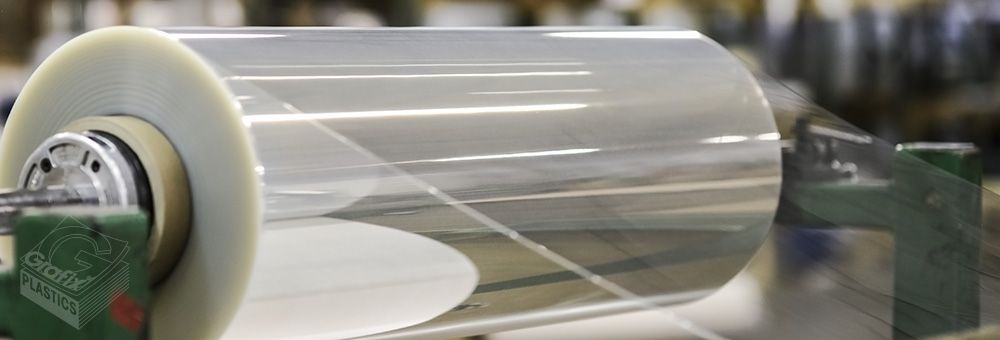
Polyester film, is a polymer resin of the polyester family. Sometimes known as PET (polyethylene terephthalate), it is also commonly referred to by some trademarked brand names such as Mylar® brand, Melinex ®, and Grafix’s own DuraLar™. Polyester is the polymer name, and Mylar® et al are brand names, for essentially the same thing. Check out our DuraLar and other Polyester Film pages for more information.
Polypropylene
Can polypropylene sheets be recycled?

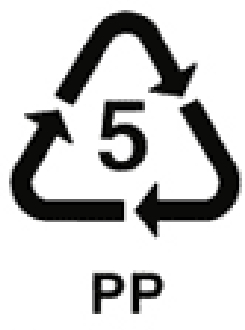
Can polypropylene sheets be recycled? Yes they can, as long as they’re recycled with other polypropylene resin materials. Polypropylene sheets can be recycled with any other materials that have this symbol.
Do Polypropylene sheets resist tearing?

Do Polypropylene sheets resist tearing? Sort of. All Polyolefin sheets will stretch a bit before they break.
Are our HDPE and Polypropylene sheets biodegradable?

Are our HDPE and Polypropylene sheets biodegradable? No, they are not. The only biodegradable film product we offer is acetate film and sheets.
Do polypropylene sheets (PP) have good insulation properties?

Do polypropylene sheets (PP) have good insulation properties? Yes, but not as good as those of polyester film products. PP sheets are not as heat-resistant, but hold up very well in cold temperatures.
Do HDPE and Polypropylene sheets have good electrical properties?

Do HDPE and Polypropylene sheets have good electrical properties? No. Electricity generates heat, but because of polyolefin’s low melting point, you want to keep this material away from elevated temperatures. For electrical applications, we recom-mend our Hazy DuraLar™ polyester film products.
Please contact us today and we can help you with your requirements.
Are polypropylene sheets approved for direct skin contact?

Are polypropylene sheets approved for direct skin contact? Although polypropylene is perfectly safe for direct and indirect skin contact, it is not certified as such.
Are our HDPE and polypropylene sheet products approved for food contact?

Are our HDPE and polypropylene sheet products approved for food contact? Yes! This entire product line is suitable for use in contact with foodstuffs. It complies with FDA, Code of Federal Regulations, Title 21 (revised April 1995). We can even provide certification to this effect; just let us know you need one when you contact us to discuss your requirements further.
Are polypropylene sheets suitable for outdoor use?

Are polypropylene sheets suitable for outdoor use? Yes! Polypropylene is a stable material under outdoor conditions. It does not, however, have a specific life time rating; product life time will vary with the outdoor conditions to which the film is exposed.
What is the heat resistance of polypropylene sheets?
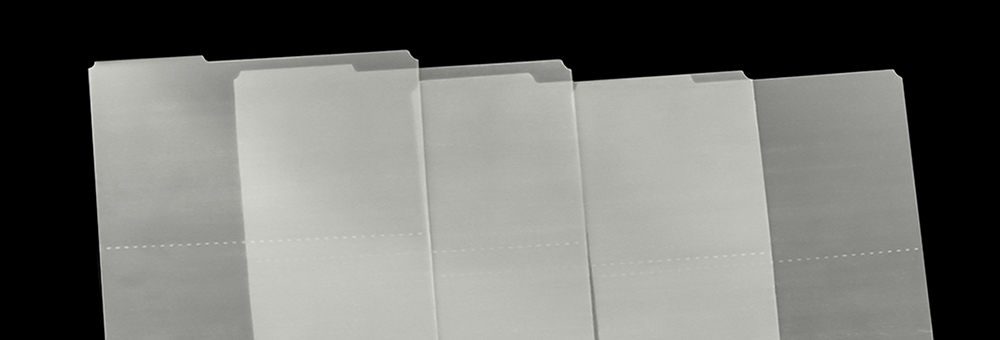
What is the heat resistance of polypropylene sheets (PP)? Polypropylene starts to soften at 70C/1580F. The film will soften very evenly, which makes HDPE ideal for thermoforming, bending, and heat sealing applications.
Are Polypropylene sheets archival?

Are Polypropylene sheets archival? Not really. These materials are pH neutral, and are the most UV-stable materials we stock. But because these materials are thicker sheets and not glass clear, there is no demand for this material in archival applications, so they have not been tested or certified for archival properties.
If you need a good all-around archival grade film, try our Archival Duralar™ product line, which meets the Library of Congress’ specifications for archival polyester film.
How can I print on Polypropylene Plastic Sheets?

Polypropylene sheets are compatible with screen printing and offset-lithography. Before you attempt to print on this type of material please contact your ink vendor to see what types of inks can be used with Polypropylene sheets. We can even provide you with sample sheets of material, that you can then have your ink vendor analyze to determine the best ink systems to work with your process. This material is NOT printable by digital methods, especially PPC/Laser printing. Further, inkjet ink, unless it's solvent ink, with not stick to the surface of this film. Contact us today with your printing requirements so we can help you get the material you need.
Specialty Plastics FAQs
Adhesive Film and Sheets
DoubleTack® 2-side Adhesive Film
Can any of our adhesive film products be recycled?
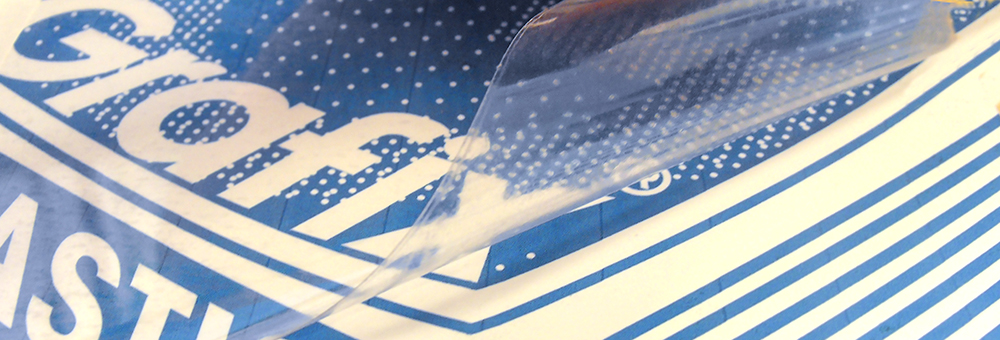
Can any of our adhesive film products be recycled? No, not in the traditional sense. The adhesive coating and release liners are contaminants that will fowl up the polymer recycling process. Or the plastic film used as face stock is a contaminant for recycling the paper liner.
Does our DoubleTack® 2-side adhesive film resist tearing?
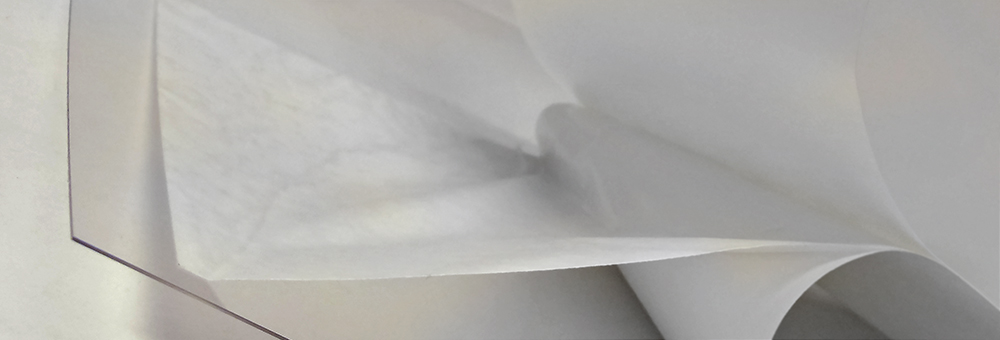
Does our DoubleTack® 2-side adhesive film resist tearing? Yes, it does, be-cause it’s made from our DuraLar™ polyester film. Polyester films are prized for their tear-resistance, and durability. Contact us with your application requirements for more info!
Is our DoubleTack® 2 side adhesive film biodegradable?

Is our DoubleTack® 2/side adhesive film biodegradable? No, it is not. The only biodegradable film product we offer is acetate film and sheets.
Does DoubleTack® have good insulation properties?

Does DoubleTack® 2/side adhesive film have good insulation properties? Sort of. DoubleTack is made from polyester film, which has great insulation properties. However, its adhesive coatings are not meant for expo-sure to elevated or reduced temperatures. Therefore we can not recommend this material for any sort of insulation application.
We can, on a custom basis, make you a pressure-sensitive adhesive (PSA) film with adhesives that are optimized for exposure to a specific elevated or reduced temperature. Minimums will apply.
Does DoubleTack® 2/side adhesive film have good electrical properties?

Does DoubleTack® 2/side adhesive film have good electrical properties? Sort of. Although it’s made out of polyester, its adhesive coating is not meant for direct electrical exposure, and we don’t have any test-ing data on this product. For electrical applications, we recommend our Hazy DuraLar™ polyester film products.
Please contact us today and we can help you with your requirements
Are Grafix Plastics’ adhesive film and sheet products approved for direct and indirect skin contact?

Are Grafix Plastics’ adhesive film and sheet products approved for direct and indirect skin contact? Although our adhesive films are perfectly safe for direct and indirect skin contact, they are not certified as such.
Are any of our adhesive film products approved for direct food contact?
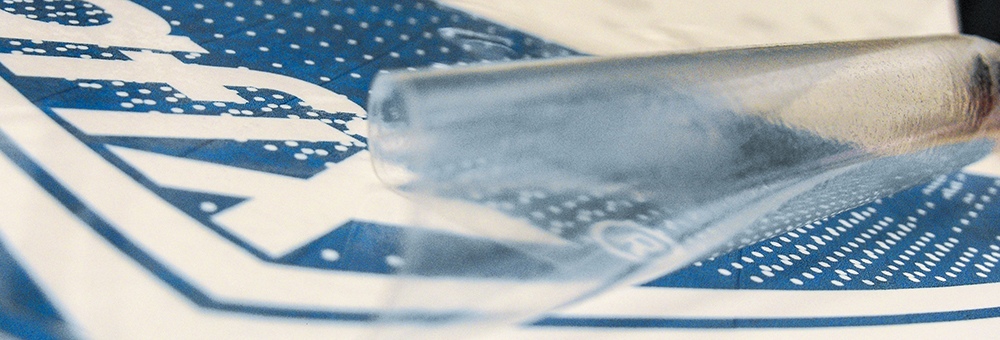
Are any of our adhesive film products approved for direct food contact? No,they are not. Grafix stocks other types of film products that are, including acetate, specific brands and grades of polyester film, HDPE and polypropylene. Other types food-safe films are available as a custom order; larger production minimum order may apply.
Is DoubleTack® 2 side adhesive film suitable for outdoor use?

Is DoubleTack® adhesive film suitable for outdoor use? No. Our Double Tack is not made to be used outside because if exposed to UV light and moisture over time, the film’s adhesive layer will lose its adhesive strength.. If you need to use this material outside, it must be contained in something else that will keep it from being exposed to UV and moisture.
What is the heat resistance of our Double Tack film?
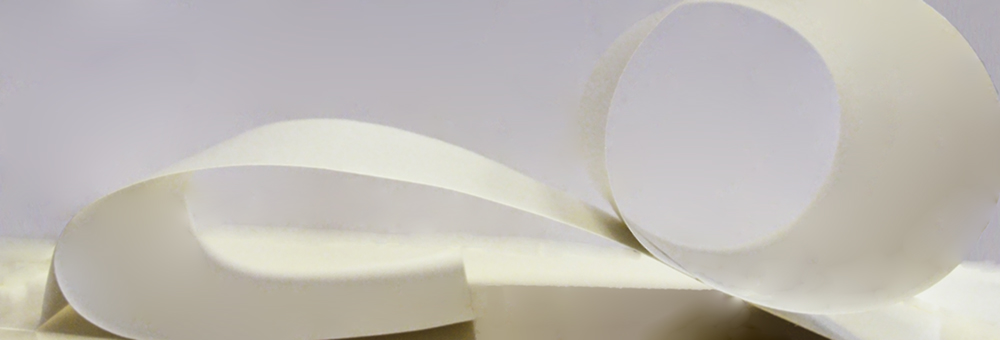
What is the heat resistance of our Double Tack™ film? Double Tack is designed for use in environments below 65C/140F. At higher temperatures, the adhesive becomes soft and loses adhesion. At really high temperatures (above 150C), it begins to lose its orientation; it will become wavy and shrink.
If you need a matte film for higher temperature applications, please contact us directly to discuss other possible options.
Is Double Tack™ archival?

Is Double Tack™ archival? No. The first rule for creating archiving materials is that the archival material can’t interfere with the thing it is protecting. DoubleTack has a stick-and-stay adhesive coating on both sides of the polyester carrier film. So it breaks that important rule! DoubleTack is pH neutral, and has good contact clarity, which makes it great for mounting documents and prints, but not for long term archiving.
How will you be using this film in an archival application? If you need a good all-around archival grade film, try our Archival Duralar™ product line, which meets the Library of Congress’ specifications for archival polyester film.
How is DoubleTack Film applied?

To remove the top liner of DoubleTack, score along one corner with a craft knife and pull the liner back along the score line. Apply the sticky side to the item you wish to have the adhesive on, and then peel back the rest of the liner. Your item is now ready to be adhered to another surface. Repeat the above process on the other side to adhere it to the second surface.
What surfaces work best with DoubleTack Film?

Double-Tack adheres to most smooth, flat, clean surfaces such as paper, wood, metal, plastic and glass. Double-Tack is made to be a general purpose, in-door adhesive system. The smoother the surface, the better it's going to work.
Pressure-sensitive Adhesive Film
Can any of our adhesive film products be recycled?

Can any of our adhesive film products be recycled? No, not in the traditional sense. The adhesive coating and release liners are contaminants that will fowl up the polymer recycling process. Or the plastic film used as face stock is a contaminant for recycling the paper liner.
Do any of our polyester film and sheet based products, such as DuraLar, Mylar® plastic film, and others, resist tearing?

Do any of our polyester film and sheet based products, such as DuraLar, Mylar® brand and others, resist tearing? Yes, they do. Polyester film is one of the most tear-resistant materials we offer.
For more information on how DuraLar can work for your particular application, please contact us with your requirements.
Are any of our polyester film and sheet based products, such as DuraLar, Mylar® plastic film, and others, biodegradable?

Are any of our polyester film and sheet based products, such as DuraLar, Mylar® brand, and others, biodegradable? No, they are not. The only biodegradable film product we offer is acetate film and sheets.
Do our DuraLar™ pressure-sensitive adhesive films (PSA) have good insulation properties?

Do our DuraLar™ pressure-sensitive adhesive films (PSA) have good insulation properties? Sort of. PSA film is made from polyester film, which has great insulation properties. However, its adhesive coatings are not meant for exposure to elevated or reduced temperatures. Therefore we can not recommend this material for any sort of insulation application.
We can, on a custom basis, make you a PSA film with adhesives that are optimized for exposure to a specific elevated or reduced temperature. Minimums will apply.
Does PSA DuraLar™ adhesive film have good electrical properties?

Does PSA DuraLar™ adhesive film have good electrical properties? Sort of. As a polyester film, one might expect it to have good electrical properties, however, its adhesive coating is not meant for direct electrical exposures. For electrical applications, we recommend our Hazy DuraLar™ polyester film products.
Please contact us today and we can help you with your requirements.
Are Grafix Plastics’ adhesive film and sheet products approved for direct and indirect skin contact?

Are Grafix Plastics’ adhesive film and sheet products approved for direct and indirect skin contact? Although our adhesive films are perfectly safe for direct and indirect skin contact, they are not certified as such.
Are any of our adhesive film products approved for direct food contact?

Are any of our adhesive film products approved for direct food contact? No,they are not. Grafix stocks other types of film products that are, including acetate, specific brands and grades of polyester film, HDPE and polypropylene. Other types food-safe films are available as a custom order; larger production minimum order may apply.
Are PSA Duralar™ films suitable for outdoor use?

Are PSA Duralar™ films suitable for outdoor use? No. Our PSA Duralar films is not made to be used outside because when exposed to ultraviolet light or moisture, the adhesive will loose it’s tack and breakdown. If you need to put this material outside, it must be contained in something else that will keep it from be-ing exposed to UV and moisture.
What is the heat resistance of our adhesive DuraLar films?

What is the heat resistance of our pressure sensitive adhesive (PSA) DuraLar™ films? PSA DuraLar is designed for use in environments below 65C/140F. At higher temperatures, the adhesive becomes soft and loses adhesion. At really high temperatures (above 150C), it begins to lose its orientation; it will become wavy and shrink.
If you need a matte film for higher temperature applications, please contact us directly to discuss other possible options.
Is PSA Duralar™ archival?

Is PSA Duralar™ archival? No. Pressure-sensitive adhesive (PSA) Duralar has a stick-and-stay adhesive coating on one side; it breaks the number one rule of archiving – material used for archiving can’t interfere with the materials it is supposed to protect. PSA DuraLar is pH neutral, and water clear, which makes it great for lamination and surface protection, but not for long term archiving.
How did you want to use this film in an archival application? If you need a good all-around archival grade film, try our Archival Duralar™ product line, which meets the Library of Congress’ specifications for archival polyester film.
Is DuraLar Adhesive Backed Film printable?
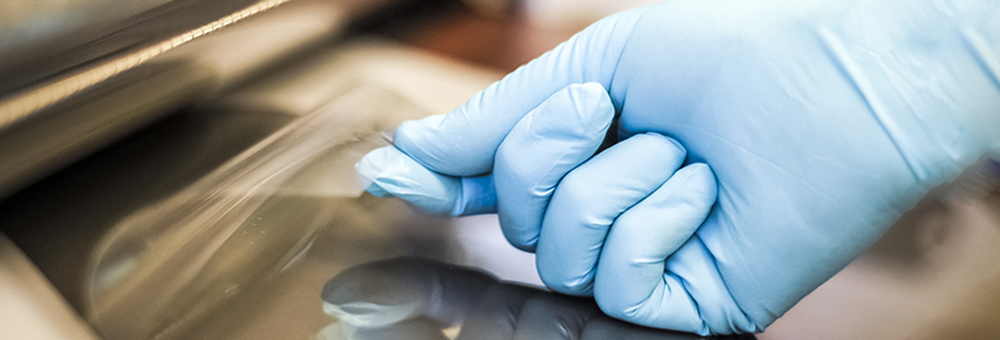
DuraLar Adhesive Back Film is not designed to be printed specifically, By enlarge our DuraLar films are able to be screen printed. We recommend you contact your ink vendor for more information on printing on Polyester Film. This product is not designed for digital printing. For digital printing on Adhesive Backed Film, please check out our ComputerGrafix films.
Surface Protection Film
Can any of our adhesive film products be recycled?

Can any of our adhesive film products be recycled? No, not in the traditional sense. The adhesive coating and release liners are contaminants that will fowl up the polymer recycling process. Or the plastic film used as face stock is a contaminant for recycling the paper liner.
Do our surface protection films resist tearing?
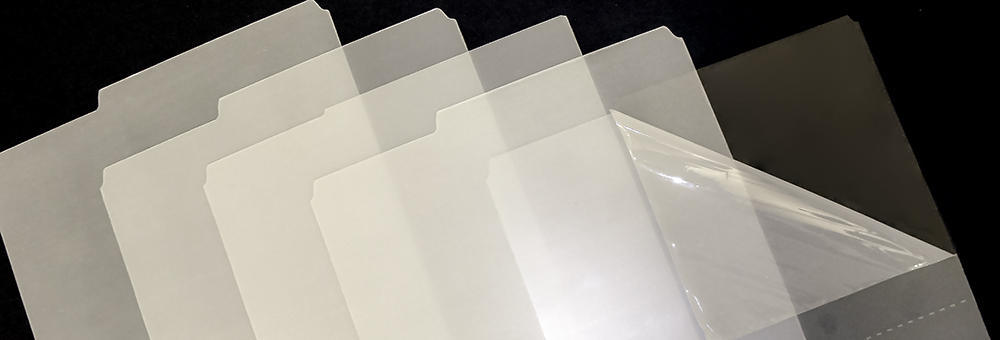
Do our surface protection films resist tearing? Sort of. Surface protection films will stretch a bit before they break.
Are our surface protection film biodegradable?

Are our surface protection film biodegradable? No, it is not. The only biodegradable film product we offer is acetate film and sheets.
Do our surface protection films (SPF) have good insulation properties?

Do our surface protection films (SPF) have good insulation properties? Not really. Our SPF films are not designed to be exposed to either elevated or reduced temperatures.
However, we can, on a custom basis, make you a pressure-sensitive adhesive (PSA) film with adhesives that are optimized for use in specific elevated or reduced temperature environments. Minimums will apply.
Do surface protection films have good electrical properties?

Do surface protection films have good electrical properties? No. Because they are made of polyolefin-based material, they don’t have great heat resistance, nor are their adhesive coatings meant for electrical applications. For electrical applications, we recommend our Hazy DuraLar™ polyester film products.
Please contact today and we can help you with your requirements.
Are Grafix Plastics’ adhesive film and sheet products approved for direct and indirect skin contact?

Are Grafix Plastics’ adhesive film and sheet products approved for direct and indirect skin contact? Although our adhesive films are perfectly safe for direct and indirect skin contact, they are not certified as such.
Are any of our adhesive film products approved for direct food contact?

Are any of our adhesive film products approved for direct food contact? No,they are not. Grafix stocks other types of film products that are, including acetate, specific brands and grades of polyester film, HDPE and polypropylene. Other types food-safe films are available as a custom order; larger production minimum order may apply.
Are surface protection films suitable for outdoor use?

Are surface protection films suitable for outdoor use? No. Extended exposure to moisture disrupts the adhesion of the film to the surface it’s designed to protect. If you need to use this material outside, it must be contained in something else that will keep it from being exposed to moisture.
Surface Protection Films

What is the heat resistance of our surface protection film? These films are designed for use in environments below 65C/140F. At higher temperatures, the adhesive becomes soft and loses adhesion. At really high temperatures (above 140C), the film begins to lose its orientation, becoming wavy and soft.
If you need a matte film for higher temperature applications, please contact us directly to discuss other possible options.
Are Surface Protection Films (SPF) archival?
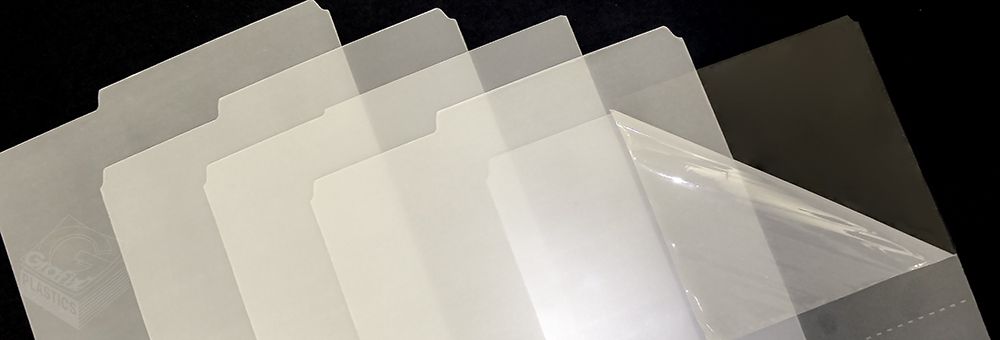
Are Surface Protection Films (SPF) archival? No. SPFs have a stick-and-stay adhesive coating on one side, which would interfere with the materials that need protecting. SPFs are pH neutral, and removable, qualities which makes them great for temporary laminations and surface protection, but not for archiving.
How did you want to use this film? If you need a good all-around archival grade film, try our Archival Duralar™ product line which meets the Library of Congress’ specifications for archival polyester film.
How can Protective Film be printed on?

Most of our Protective Films are compatible with screen printing, however we recommend you provide samples to your ink vendor for testing. It is not designed for any other printing methods. Our Protective Films are not printable by Digital processes such as Inkjet or PPC/Laser.
ComputerGrafix Film and Sheets
Inkjet-printable Film
How can I print on Dura-Bright™ Synthetic Papers?
Printability is one of Dura-Bright™’s best qualities. Dura-Bright is compatible with screen printing and offset lithography. Before you attempt to print on this type of material, we strongly recommend you contact your ink vendor to see what types of inks can be used with polypropylene sheets. We can even provide you with sample sheets of Dura-Bright, which you can have your ink vendor analyze to determine the best ink systems to work with your process.
Dura-Bright synthetic paper is solvent inkjet ink printable; however, other types of inkjet ink will not stick to the surface of this film.
Dura-Bright can also be printed on low-temperature PPC/Laser equipment. If you aren’t sure if your PPC/Laser printer is low temperature, please check with your manufacturer before trying this out.
Contact us today with your printing requirements so we can help you get the correct material for your specific needs.
Can our ComputerGrafix digital printable films be recycled?
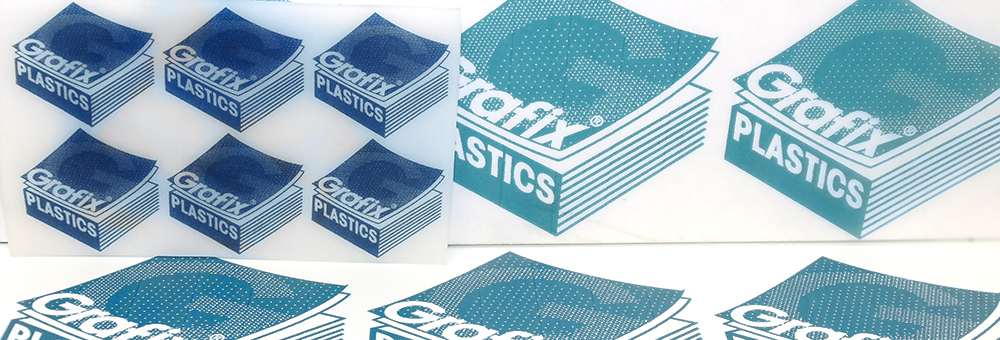
Can our ComputerGrafix digital printable films be recycled? No, not in the traditional sense. The printable coating on these films are a contaminant that will fowl up the recycling process.
Does ComputerGrafix inkjet-printable film resist tearing?

Does ComputerGrafix inkjet-printable film resist tearing? Yes, it does, because it’s made from polyester film. However, attempting to tear it could cause damage to its functional coatings.
Is our inkjet-printable film biodegradable?

Is our inkjet-printable film biodegradable? No, it is not. The only biodegradable film product we offer is acetate film and sheets.
Does ComputerGrafix™ inkjet-printable film have good insulation properties?

Does ComputerGrafix™ inkjet-printable film have good insulation properties? Sort of. Inkjet-printable film is made from polyester film, which has great insulation properties. However, its functional coatings are not meant for exposure to elevated or reduced temperatures. Therefore we can not recommend this material for any sort of insulation application.
Do ComputerGrafix digital printable films have good electrical properties?

Do ComputerGrafix digital printablel films have good electrical properties? Sort of. Although it’s made out of polyester, its coatings are not meant for direct electrical exposure, and we don’t have any testing data on this product. For electrical applications, we recommend our Hazy DuraLar™ polyester film products.
Please contact us today and we can help you with your requirements.
Are ComputerGrafix printable films approved for direct and indirect skin contact?

Are ComputerGrafix printable films approved for direct and indirect skin contact? Although ComputerGrafix films are perfectly safe for direct and indirect skin contact, they are not certified as such. To achieve good results with this product, you don’t want to touch ComputerGrafix films prior to printing anyway; touching the substrate can cause finger printing, smudges, and poor print quality in the spots where the film was touched.
Are any of our ComputerGrafix films approved for direct food contact?

Are any of our ComputerGrafix films approved for direct food contact? No. Grafix stocks other types of film products that are, including acetate, specific brands and grades of polyester film, HDPE and polypropylene. Other types food-safe films are available as a custom order; larger production minimum order may apply.
Is our inkjet film suitable for outdoor use?

Is our inkjet film suitable for outdoor use? No. Our Inkjet Film is not made to be used outside. If you need to put this material outside, it must be contained in something else, that will keep it from being exposed to UV and moisture, so that the printed surface doesn’t run.
What is the heat resistance of inkJet-printable film?

What is the heat resistance of inkJet-printable film? Inkjet film’s coatings are designed to be used in environments up to 65C/130F. At elevated temperatures, the printable surface could yellow, or lose some of its ink adhesion properties. And when inkjet film softens, it begins to lose its orientation; it will become wavy and shrink.
Are Inkjet-printable Films archival?

Are Inkjet-printable Films archival? No. There are three aspects that go into determining whether a film is actually archival grade: 1- whether it is pH neutral, 2- whether or not the film will impact what it comes in contact with, and 3- whether it can be sonic-ally welded to itself. Inkjet-printable Films are all Clear, pH neutral polyester-based films. The surface treatments on polyester-based film are optimized to support digital printing, and are not considered to be archival. Their ink or toner adhesion properties are counterproductive to the needs of long term archival applications.
How will you be using this film in an archival application? If you need a good all-around archival grade film, try our <Link: Archival Duralar product line > ,which meets the Library of Congress’ specifications for archival polyester film.
Laser-printable Film
How can I print on Dura-Bright™ Synthetic Papers?
Printability is one of Dura-Bright™’s best qualities. Dura-Bright is compatible with screen printing and offset lithography. Before you attempt to print on this type of material, we strongly recommend you contact your ink vendor to see what types of inks can be used with polypropylene sheets. We can even provide you with sample sheets of Dura-Bright, which you can have your ink vendor analyze to determine the best ink systems to work with your process.
Dura-Bright synthetic paper is solvent inkjet ink printable; however, other types of inkjet ink will not stick to the surface of this film.
Dura-Bright can also be printed on low-temperature PPC/Laser equipment. If you aren’t sure if your PPC/Laser printer is low temperature, please check with your manufacturer before trying this out.
Contact us today with your printing requirements so we can help you get the correct material for your specific needs.
Can LaserPro™ laser cuttable film products be recycled?
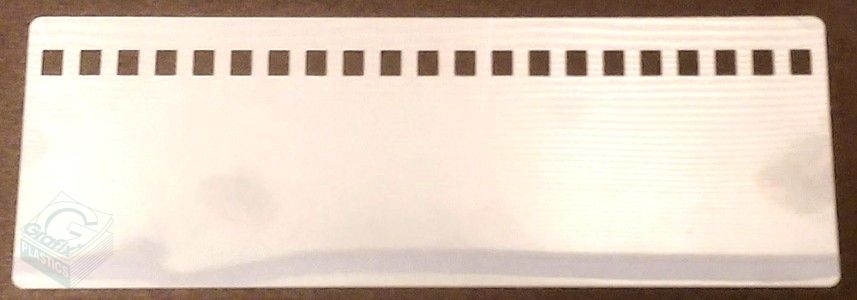
Can LaserPro™ laser cuttable film products be recycled? No, not in the traditional sense. The proprietary coating on this film is a contaminant that will fowl up the recycling process.
Can our ComputerGrafix digital printable films be recycled?

Can our ComputerGrafix digital printable films be recycled? No, not in the traditional sense. The printable coating on these films are a contaminant that will fowl up the recycling process.
Does ComputerGrafix laser-printable film resist tearing?

Does ComputerGrafix laser-printable film resist tearing? Yes, it does, because it’s made from polyester film. However, attempting to tear it could cause damage to its functional coatings.
Is our laser-printable film biodegradable?

Is our laser-printable film biodegradable? No, it is not. The only biodegradable film product we offer is acetate film and sheets.
Does ComputerGrafix™ laser-printable film have good insulation properties?

Does ComputerGrafix™ laser-printable film have good insulation properties? Sort of. Laser-printable film is made from polyester film, which has great insulation properties. However, its functional coatings are not meant for exposure to elevated or reduced temperatures. Therefore we can not recommend this material for any sort of insulation application.
Do ComputerGrafix digital printable films have good electrical properties?

Do ComputerGrafix digital printablel films have good electrical properties? Sort of. Although it’s made out of polyester, its coatings are not meant for direct electrical exposure, and we don’t have any testing data on this product. For electrical applications, we recommend our Hazy DuraLar™ polyester film products.
Please contact us today and we can help you with your requirements.
Are ComputerGrafix printable films approved for direct and indirect skin contact?

Are ComputerGrafix printable films approved for direct and indirect skin contact? Although ComputerGrafix films are perfectly safe for direct and indirect skin contact, they are not certified as such. To achieve good results with this product, you don’t want to touch ComputerGrafix films prior to printing anyway; touching the substrate can cause finger printing, smudges, and poor print quality in the spots where the film was touched.
Are any of our ComputerGrafix films approved for direct food contact?

Are any of our ComputerGrafix films approved for direct food contact? No. Grafix stocks other types of film products that are, including acetate, specific brands and grades of polyester film, HDPE and polypropylene. Other types food-safe films are available as a custom order; larger production minimum order may apply.
Is our Laser-printable film suitable for outdoor use?

Is our Laser-printable film suitable for outdoor use? No. If exposed to outdoor conditions will ruin the printed surface. If you need to use this material outside, it must be contained in something else that will keep it from being exposed to UV and moisture.
What is the heat resistance of Laser-printable film?

What is the heat resistance of Laser-printable (PPC/Laser) film? PPC/Laser Ffilm is designed to handle the quick high heat exposure in toner-based plain-paper copiers and laser printers. Its coatings are designed to be used in environments up to 85C/185F. At higher temperatures, the printable surface could yellow, or lose some of its toner adhesion properties. Further, when PPC/Laser softens, it begins to lose its orientation; it becomes wavy and shrinks.
If you need a PPC/Laser film for higher temperature applications, please contact us directly to discuss other possible options.
Are Laser-printable Films (PPC/Laser) archival?

Are Laser-printable Films (PPC/Laser) archival? No. There are three aspects that go into determining whether a film is actually archival grade: 1- whether it is pH neutral, 2- whether or not the film will impact what it comes in contact with, and 3- whether it can be sonic-ally welded to itself. PPC/Laser Films are all Clear, pH neutral polyester-based films. The surface treatments on these polyester-based films are optimized to support digital printing, and are not considered to be archival. Their ink or toner adhesion properties are counterproductive to the needs of long term archival applications.
How will you be using this film in an archival application? If you need a good all-around archival grade film, try our Archival Duralar product line ,which meets the Library of Congress’ specifications for archival polyester film.
Translucent Imaging Film
Can our ComputerGrafix digital printable films be recycled?

Can our ComputerGrafix digital printable films be recycled? No, not in the traditional sense. The printable coating on these films are a contaminant that will fowl up the recycling process.
Does translucent imaging film (TIF) resist tearing?

Does translucent imaging film (TIF) resist tearing? Yes, it does, because it’s made from polyester film. However, at-tempting to tear it could cause damage to its functional coatings.
Is our translucent imaging film biodegradable?

Is our translucent imaging film biodegradable? No, it is not. The only biodegradable film product we offer is acetate film.
Does translucent imaging film have good insulation properties?

Does translucent imaging film (TIF) have good insulation properties? Sort of. TIF is made from polyester film, which has great insulation properties. However, its functional coatings are not meant for exposure to either elevated or reduced temperatures. Therefore, we can not recommend this material for any sort of insulation application.
Do ComputerGrafix digital printable films have good electrical properties?

Do ComputerGrafix digital printablel films have good electrical properties? Sort of. Although it’s made out of polyester, its coatings are not meant for direct electrical exposure, and we don’t have any testing data on this product. For electrical applications, we recommend our Hazy DuraLar™ polyester film products.
Please contact us today and we can help you with your requirements.
Are ComputerGrafix printable films approved for direct and indirect skin contact?

Are ComputerGrafix printable films approved for direct and indirect skin contact? Although ComputerGrafix films are perfectly safe for direct and indirect skin contact, they are not certified as such. To achieve good results with this product, you don’t want to touch ComputerGrafix films prior to printing anyway; touching the substrate can cause finger printing, smudges, and poor print quality in the spots where the film was touched.
Are any of our ComputerGrafix films approved for direct food contact?

Are any of our ComputerGrafix films approved for direct food contact? No. Grafix stocks other types of film products that are, including acetate, specific brands and grades of polyester film, HDPE and polypropylene. Other types food-safe films are available as a custom order; larger production minimum order may apply.
Is our translucent imaging film suitable for outdoor use?

Is our translucent imaging film (TIF) suitable for outdoor use? No. Our TIF film is not made to withstand direct exposure to ultraviolet light or moisture. If you need to use this material outside, it must be contained in something else that will protect it from being exposed to UV and moisture.
What is the heat resistance of translucent imaging film?

What is the heat resistance of translucent imaging film (TIF)? TIF is designed to handle the quick heat exposure in a toner-based plain-paper copier/laser printer. Its coatings are designed to be used in environments up to 85C/185F. At higher temperatures, the printable surface could yellow, or lose some of its toner adhesion properties. When TIF softens, it begins to lose its orientation; it will become wavy and shrink.
Drafting Film
Can drafting film be recycled?

Can drafting film be recycled? No, not in the traditional sense. The drafting coating on this film is a contaminant that will fowl up the recycling process
Does drafting film resist tearing?
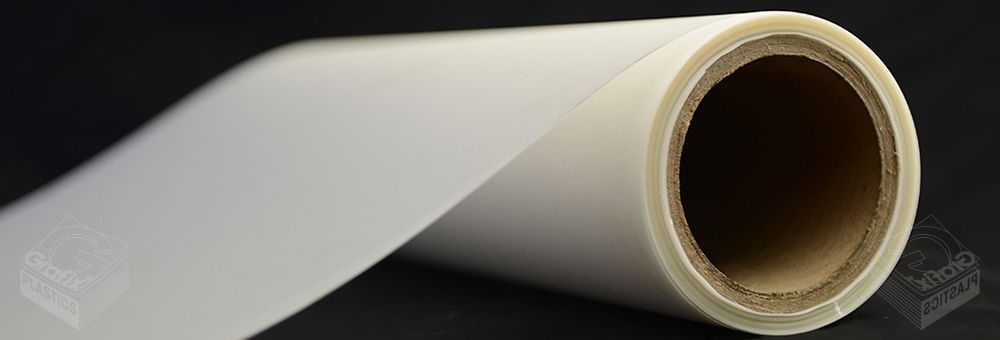
Does drafting film resist tearing? Yes, it does because it’s made from polyester film. However, attempting to tear it could cause damage to its functional coatings.
Is our drafting film biodegradable?

Is our drafting film biodegradable? No, it is not. The only biodegradable film product we offer is acetate film and sheets.
Does drafting film have good insulation properties?

Does drafting film have good insulation properties? Sort of. Drafting film is made from polyester film, which has great insulation properties. However, its functional coatings are not meant for exposure to elevated or reduced temperatures. Therefore we can not recommend this material for any sort of insulation application.
Does drafting film have good electrical properties?

Does drafting film have good electrical properties? Sort of. Although it’s made out of polyester, its drafting coatings are not meant for direct electrical exposure, and we don’t have any test-ing data on this product. For electrical applications, we recommend our Hazy DuraLar™ polyester film products.
Please contact us today and we can help you with your requirements.
Is Drafting Film approved for direct and indirect skin contact?

Is Drafting Film approved for direct and indirect skin contact? Although drafting film is perfectly safe for direct and in-direct skin contact, it is not certified as such.
Is drafting film approved for direct food contact?

Is drafting film approved for direct food contact? No. Grafix stocks other types of film products that are, including acetate, specific brands and grades of polyester film, HDPE and polypropylene. Other types food-safe films are available as a custom order; larger production minimums may apply.
Is drafting film suitable for outdoor use?

Is drafting film suitable for outdoor use? No. If exposed to ultraviolet light or moisture, our drafting film will lose its surface quality and film integrity. If you need to use this material outside, it must be contained in something else that will keep it from being exposed to UV and moisture
What is the heat resistance of Drafting Film?

What is the heat resistance of Drafting Film? Drafting Film is designed for use in environments below 85C/185F. At higher temperatures, the matte surface could yellow, or loose some of it’s ink adhesion properties. At really high temperatures above 150C it begins to loose it’s orientation, thus it will become wavy and shrink.
If you need a matte film for higher temperature applications, please contact us directly to discuss other possible options.
Is drafting film archival?

Is drafting film archival? No, not really. Originally, drafting film was designed to be drawn on by pen and ink, and not change its shape over time. It was meant to be a drawing medium, not a storage medium for documents and periodicals.
How will you be using this film in an archival application? If you need a good all-around archival grade film, try our Archival Duralar™ product line, which meets the Library of Congress’ specifications for archival polyester film.
LaserPro™ Laser-cuttable Film
Does LaserPro™ laser cuttable film resist tearing?

Does LaserPro™ laser cuttable film resist tearing? Yes, it does because it’s made from polyester film. However, attempting to tear it could cause damage to its functional coatings.
Is LaserPro™ laser-cuttable film biodegradable?

Is LaserPro™ laser-cuttable film biodegradable? No, it is not. The only biodegradable film product we offer is acetate film and sheets.
Does LaserPro™ laser cuttable film have good insulation properties?

Does LaserPro™ laser cuttable film have good insulation properties? Sort of. LaserPro is made from polyester film, which has great insulation properties. However, its functional coatings are not meant for exposure to elevated or reduced temperatures. Therefore we can not recommend this material for any sort of insulation application.
Does LaserPro™ laser cuttable films have good electrical properties?

Does LaserPro™ laser cuttable films have good electrical properties? Yes, sort of, because it’s made out of Hazy DuraLar™ polyester film. However, its surface coatings are not meant for direct electrical exposure, and we don’t have any testing data on this product under those conditions. For electrical applications, we recommend our Hazy DuraLar™ polyester film products.
Please contact us today and we can help you with your requirements.
Are Laserpro™ film and sheet products approved for direct skin contact?

Are Laserpro™ film and sheet products approved for direct skin contact? Although LaserPro is perfectly safe for direct and indi-rect skin contact, it is not certified as such.
Is LaserPro™ approved for direct food contact?

Is LaserPro™ approved for direct food contact? No. Grafix stocks other types of film products that are, including acetate, specific brands and grades of polyester film, HDPE and polypropylene. Other types food-safe films are available as a custom order; larger production minimums may apply.
Is LaserPro™ stencil film suitable for outdoor use?

Is LaserPro™ stencil film suitable for outdoor use? No. If exposed to ul-traviolet light or moisture, LaserPro will become brittle and loose it’s properties If you need to put this material outside, it must be contained in something else that will keep it from being exposed to UV and moisture.
What is the heat resistance of LaserPro films?

What is the heat resistance of LaserPro™ laser cuttable films? LaserPro films will begin to soften at about 150C/300F. When this films soften, it begin to lose its orientation; get wavy and begin to shrink. So if your film will only be exposed to a heat environment below 150C/300F, LaserPro is a good choice.
Is LaserPro™ considered an archival film?

Is LaserPro™ considered an archival film? Nope. Even though it's made of polyester film, it's laser cuttable release coatings on the surface are not made to be of archival quality.
If you’re looking for a good all-around archival grade film, try our Archival Duralar™ product line which meets the Library of Congress’ specifications for archival polyester film.
How should I clean LaserPro stencil film?

Before the film is cut, we recommend using only warm soap and water. Household cleaners, many of which are ammonia- or alcohol-based, will change the anti-fuse properties of the surface of the film. This is also the case with solvents like paint thinner. Once the film is cut, however, you may clean it with anything you'd like, even nasty solvents like paint thinner, and turpentine.
Can I print on LaserPro stencil film?

No. Unfortunately, we cannot recommend any printing method for LaserPro stencil films. The very feature that makes it laser-cuttable in stacks is what prevents ink and toner from sticking to its surface. If you need a laser-cuttable film that is also printable, we suggest you look at our Drafting Film products. For more information on this topic, please contact us.
Do you have laser cutting instructions for LaserPro stencil film?

No, we do not. There are many variables that will determine how LaserPro stencil films will cut, such as type of laser machine, setting options, and the thickness of the LaserPro film. LaserPro stencil films were developed more than 15 years ago, to be able to be laser cut in stacks of sheets and not be permanently fused together. There are a wide range of different machines, with different laser powers, and different cutting beds, so it's impossible for us to come up with instructions that fit all circumstances. But we’re happy to provide you with sample sheets free of charge, that you can use to evaluate and test cut.
OptiGrafix™ Optical Film
Asymmetric Light Diffuser Films
Can asymmetric light diffuser film be recycled?


Can asymmetric light diffuser film be recycled? Yes it can, as long as it’s recycled with other polyester resin materials. Asymmetric light diffuser film can be recycled with any other materials that have this symbol.
Is our asymmetric light diffuser film biodegradable?

Is our asymmetric light diffuser film biodegradable? No, it is not. The only biodegradable film product we offer is acetate film and sheets.
Does Asymmetric light diffuser film have good electrical properties?

Does Asymmetric light diffuser film have good electrical properties? Sort of. Although it’s made out of polyester, it’s not meant for direct electrical exposure, and we don’t have any testing data on this product. For electrical applications, we recommend our Hazy DuraLar™ polyester film products.
Please contact us today and we can help you with your requirements.
Is asymmetric light diffuser film approved for direct and indirect skin contact?

Is asymmetric light diffuser film approved for direct and indirect skin contact? Although asymmetric light diffusers are perfectly safe for direct and indirect skin contact, they are not certified as such.
Are any of our optical films, including our various diffuser film and paper, approved for direct food contact?

Are any of our optical films, including our various diffuser film and paper, approved for direct food contact? No. Grafix stocks other types of film products that are, including acetate, specific brands andgrades of polyester film, HDPE and polypropylene. Other types food-safe films are available as a custom order; larger production minimums may apply.
Are our asymmetric diffuser films suitable for outdoor use?

Are our asymmetric diffuser films suitable for outdoor use? No, not as a first surface. If exposed to the elements, our asymmetric diffuser film will degrade over time. If you need to use this material outside, it must be contained in some-thing else that will keep it from being exposed to excessive UV and moisture.
What is the heat resistance of asymmetrical diffuser film?

What is the heat resistance of asymmetrical diffuser film? Asymmetric diffuser film is designed to withstand heat up to 80C/145F. Exposure at higher temperatures will cause the film to start to melt, and its diffusion lens system will become deformed.
How can I print on DFML?

DFML can be printed on its gloss side, by Screen Printing, or Offset Lithography. DFML might be suitable for Solvent, Latex or UV Curable Inkjet printing, which are the only digital printing options could work on DFML. DO NOT USE DFML in any plain paper copier, laser printer, or other heat fusing digital printing technology.
Is DFML Thermoformable?

Yes, DFML is Thermoformable. However the more you draw this film, the more the micro louvre lens surface gets distorted. This could be a good thing or a bad thing depending on the diffusion you are trying to create. For something like this, it is always best to experiment.
Circular Light Diffuser Films
Can circular light diffuser film be recycled?

Can circular light diffuser film be recycled? No, not in the traditional sense. The diffusion coating on this film is a contaminant that will foul up the recycling process.
Does circular light diffuser film resist tearing?

Does circular light diffuser film resist tearing? Yes, it does, because it’s made from our DuraLarTM polyester film. However, attempting to tear it could cause damage to its functional coatings.
Is our circular light diffuser film biodegradable?

Is our circular light diffuser film biodegradable? No, it is not. The only biodegradable film product we offer is Acetate film and sheets.
Does circular light diffuser film have good electrical properties?

Does circular light diffuser film have good electrical properties? Sort of. Although it’s made out of polyester, its high performance light diffusion coatings are not meant for direct electrical exposure, and we don’t have any testing data on this product in applications where the film is being directly exposed to electrical current. For electrical applications, we recommend our Hazy DuraLar™ polyester film products.
Please contact us today and we can help you with your requirements.
Are circular light diffuser films approved for direct and in-direct skin contact?

Are circular light diffuser films approved for direct and in-direct skin contact? Although circular light diffusers are perfectly safe for direct and indirect skin contact, they are not certified as such.
Are any of our optical films, including our various diffuser film and paper, approved for direct food contact?

Are any of our optical films, including our various diffuser film and paper, approved for direct food contact? No. Grafix stocks other types of film products that are, including acetate, specific brands andgrades of polyester film, HDPE and polypropylene. Other types food-safe films are available as a custom order; larger production minimums may apply.
Are our circular/bulk diffuser films suitable for outdoor use?

Are our circular/bulk diffuser films suitable for outdoor use? No, not as a first surface. If exposed to the elements, our circular/bulk diffuser film diffusion surface(s) will be negatively impacted If you need to put this material outside, it must be contained in something else that will keep it from being exposed to excessive UV and moisture.
What is the heat resistance of circular light diffuser film?

What is the heat resistance of circular light diffuser film? Circular light diffuser film is designed for use in environments below 85C/185F. At higher temperatures, the matte surface could yellow, or lose some of its ink adhesion properties. At really high temperatures (above 150C), it begins to lose its orientation; it will become wavy and shrink.
If you need a matte film for higher temperature applications, please contact us directly to discuss other possible options.
Light Diffuser Papers
Can light diffuser paper be recycled?

Can light diffuser paper be recycled? Yes it can, right along with regular paper.
Is our light diffuser paper tear-resistant?

Is our light diffuser paper tear-resistant? Nope, it’s paper!
Is our light diffuser paper biodegradable?

Is our light diffuser paper biodegradable? Yes, it is! After all, it’s paper!
Does light diffusion paper have good electrical properties?

Does light diffusion paper have good electrical properties? No! It’s paper! For electrical applications, we recommend our Hazy DuraLar™ polyester film products.
Please contact us today and we can help you with your requirements.
Are light diffuser papers approved for direct and indirect skin contact?

Are light diffuser papers approved for direct and indirect skin contact? Although light diffusers papers are perfectly safe for direct and indirect skin contact, they are not certified as such.
Are any of our optical films, including our various diffuser film and paper, approved for direct food contact?

Are any of our optical films, including our various diffuser film and paper, approved for direct food contact? No. Grafix stocks other types of film products that are, including acetate, specific brands andgrades of polyester film, HDPE and polypropylene. Other types food-safe films are available as a custom order; larger production minimums may apply.
Is Light Diffuser Paper suitable for outdoor use?

Is our diffuser paper appropriate to use outdoors? No it’s not! After all, it’s paper.
What is the heat resistance of light diffuser paper?

What is the heat resistance of light diffuser paper? It’s paper! So no putting it near any spark, open flame or other ignition situation. We don’t recommend this product be used as any sort of insulator, and can only recommend its use in low heat lighting applications, like LED and fluorescent bulb luminaries. If you need a more heat resistant light diffuser material, we suggest you check out our Circular Light Diffuser film and sheets.
Polyseam Artificial Turf Film
Can Mylar® plastic film, DuraLar™, and other polyester film and sheets be recycled?


Yes, Mylar® brand, DuraLar™, and other polyester film and sheets can be recycled, as long as it’s recycled with other polyester resin materials. Uncoated, unlaminated, polyester film and sheets can be recycled with any other materials that have this symbol.
Can Polyseam be recycled?


Can Polyseam be recycled? Yes it can, as long as it’s re-cycled with other polyester resin materials. Polyseam can be recycled with any other materials that have this symbol.
Does Polyseam film resist tearing?

Does Polyseam film resist tearing? Yes, it does. That’s one of its main features, and the reason why it’s so effective in artificial turf seaming applications.
Is polyseam film biodegradable?

Is polyseam film biodegradable? No, it is not. The only biodegradable film product we offer is acetate film and sheets.
Does polyseam film have good electrical properties?

Does Polyseam film have good electrical properties? Yes, because it’s made out of polyester film. However, for electrical applications, we recommend our Hazy DuraLar™ polyester film products.
Please contact us today and we can help you with your requirements.
Is polyseam film approved for direct and indirect skin contact?

Is polyseam film approved for direct and indirect skin contact? Although polyseam is perfectly safe for direct and indirect skin contact, it is not certified as such.
Is Polyseam approved for direct food contact?

Is Polyseam approved for direct food contact? No. Grafix stocks other types of film products that are, including Aacetate, specific brands and grades of polyester film, HDPE and polypropylene. Other types food-safe films are available as a custom order; larger production minimumsmay apply to your order.
Is Polyseam able to be used outdoors?

Is Polyseam able to be used outdoors? Yes, but not with the film directly exposed to the elements. In it’s application, it is to be used as an adhesive carrier under artificial turf material. As such Polyseam is underneith artificial turf, and is not directly exposed to the elements. When used in its intended application, Polyseam can be used in outdoor applications.
What is the heat resistance of Polyseam?

What is the heat resistance of polyseam? Polyseam will begin to soften at about 150C/300F. When polyseam softens, it begins to lose its orientation; it will become wavy and shrink..
What is the best way to cut Polyseam?

Polyseam is made from .005” polyester which is easy to cut with scissors or a box knife. It does not tear easily so a sharp blade should be used and the material will need to be cut completely.
Does Polyseam come with Adhesive?

No, Polyseam is a backer for your adhesive. If you'd like an adhesive coated film with release liner, please check out our Adhesive DuraLar product page.
Shrink-Art Film
How to use Shrink Art films
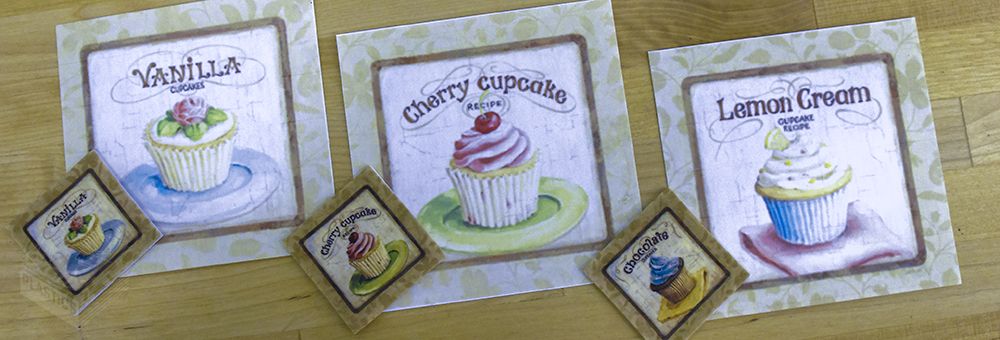
Grafix Shrink Art Film Instructions:
- Draw or trace a design on the film.
- Decorate with permanent inks, markers and rubber stamps.
- If inkjet version was purchased, this film is printable on both sides. - Cut out the design.
- Use with regular/decorative scissors or die cutting systems.
- If needed, punch holes with a paper punch prior to baking. - Pre-heat oven between 300°- 350°.
- Test with a scrap piece to determine best baking temperature and time. - Place design on cookie sheet lined with medium weight cardboard, teflon sheet, parchment paper or vellum.
- Do not bake on bare metal or any stoneware. - Heat for approximately 2-3 minutes until flat or shrinking has stopped.
- Bake in conventional or toaster ovens or use with an embossing tool.
Baking Tips
- Cover design with parchment paper or vellum to minimize curling and sticking while baking.
- If curling or sticking occurs, remove from oven, flatten with a spatula or pull apart with utensils or tweezers when slightly cooled and then reheat to complete the shrinking process.
- When removed from the oven, the film is still pliable and can be flattened or shaped.
- If using an embossing tool, control the shrinking by moving the tool away and closer. To heat evenly, turn the piece over.
- Use caution when handling before cooled. The designs will be HOT.
- For larger or longer designs, heat at a lower temperature to slow the shrinking process and reduce distortion.
- The film will not shrink perfectly proportionate. Please allow for some distortion.
Can ShrinkArt films be recycled?

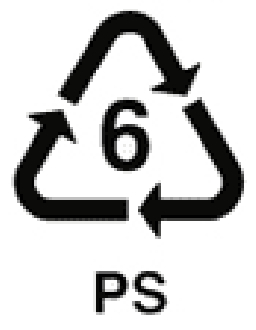
Can ShrinkArt films be recycled? Yes they can, as long as they're recycled with materials that have this symbol on them.
Is our ShrinkArt film biodegradable?

Is our ShrinkArt film biodegradable? No, it is not. The only biodegradable film product we offer is acetate film and sheets.
Does ShrinkArt film have good electrical properties?

Does ShrinkArt film have good electrical properties? No. Electricity generates heat; because of ShrinkArt film’s low melt-ing point, you want to keep this material away from elevated temperatures. For electrical applications, we recommend our Hazy DuraLar™ polyester film.
Please contact us today and we can help you with your requirements.
Are ShrinkArt films approved for direct skin contact?

Are ShrinkArt films approved for direct skin contact? Although, ShrinkArt films are perfectly safe for direct and indirect skin contact, they are not certified as such.
Is ShrinkArt film approved for direct food contact?

Is ShrinkArt film approved for direct food contact? No. Grafix stocks other types of film products that are, includ-ing acetate, specific brands and grades of polyester film, HDPE and polypropylene. Other types of food-safe films are available as a custom order; larger production minimums may apply.
Is ShrinkArt film suitable for outdoor use?

Is ShrinkArt film suitable for outdoor use? No. Our ShrinkArt film is not made to withstand extended exposure to ultraviolet light or moisture. If you need to put this material outside, it must be contained in something else that will keep it from being exposed to UV and moisture.
What is the heat resistance of Shrink-Art Films?

What is the heat resistance of Shrink-Art Films? Well, it’s fairly low, compared with other films like our DuraLar™ films. It’s even a little less heat resistant than our ClearLay™ Rigid PVC and our acetate film. But that’s a good thing! The whole point of Shrink-Art film is to bake it in an oven and watch it shrink. For more information on using our Shrink-Art film, please review the usage instructions on the product page.
Are Shrink-Art films considered archival?

Are Shrink-Art films considered archival? No. Although it is pH neutral, it is not considered archival or suitable for long term archival applications.
If you’re looking for a good all-around archival grade film, try our <Link: Archival Duralar product line >,which meets the Library of Congress’ specifications for archival polyester film. Need more info about shrink film? Check out our <link to the whole shrink film FAQ>.
How can Shrink-Art Film be printed?

Our plain Shrink-Art Film is mostly screen printable, although it should also be printable via other conventional printing methods. Please consult your ink vendor for specifics on ink formulations, etc. For digital printing we offer our Desktop Inkjet Printable Shrink-Art Film, designed for consumer grade inkjet printers. DO NOT put these products through PPC/Laser or any other heat fuser digital printing process.
Plastics Usage FAQs
Most-frequent Plastics Usage FAQs
What thickness of plastic film do I need?
Plastic Film and Sheet thickness is expressed in a number of different formats all related to length. In the English measurement system, we use inches (in decimals) and gauge, so a sheet of .005" thick ...
Specific Application FAQs
Answers about whether we carry material for some very specific applications ...
Plastic film and sheet solutions for many commercial markets
Innovating your vision ...
Acetate
What are the advantages of using Acetate film and sheets?

Acetate is environmentally friendly and offers significant advantages for use in many industries. Because it is a solution-cast film made from wood and cotton, it has unique properties, including the ability to transmit moisture, optical clarity, and low birefringence. For example, acetate film is ideal for use with bakery products that are packed while still hot. Since it has a high moisture transmission ratio (WVTR), condensation passes through the film, ensuring the product remains fresh and at the same time avoiding condensation on the film surface. Acetate film also has excellent moisture permeability, which minimizes the risk of fogging in chilled display cabinets. Because acetate film is food-safe, it is well suited for use in food packaging, as it ensures there is no migration of unwanted material into the food products.
Acetate film is 100% biodegradable; all its main components are produced from natural wood pulp and cotton, and not fossil fuels. The wood pulp is sourced from SFI (Sustainable Forestry Initiative®) managed plantations, which typically plant more trees than harvested to ensure no endangered hardwoods are used.
Is Acetate film and sheets thermoformable?

Because acetate film and sheets soften easily at higher temperatures, it is ideal for thermoforming and heat sealing applications. We highly recommend testing the film to make sure it is suitable for your specific application. Contact us today for samples to test in your thermoforming application.
ClearLay™
Does ClearLay contain plasticizers?

ClearLay Vinyl Sheets and Film, are made of rigid PVC, which is PVC that contains no plasticizers. Plasticizer is used to give Vinyl it's soft feeling and greater pliability. The softer the Vinyl the more plasticizer has been used. The absence of plasticizer in Clearlay makes the film relatively hard. On the other end of the scale is our Grafix Cling Vinyl sheets that are loaded with plasticizer, which is what makes them adhere to ultra smooth surfaces. Flexible Vinyl Sheets have a measured amount of plasticizer to give them a targeted softness (called "Hand" in the Vinyl Industry).
How is ClearLay fabricated?

ClearLay vinyl sheets and film can be processed using various methods, to reconfigure it for with a specific application. We offer several processes such as slitting, rewinding, sheeting, interleaving, laminating and finishing services to help convert our materials into a format that can be used for your application.
Please check out our Converting Services page for specific information regarding these processes.
Do ClearLay vinyl film and sheets come embossed?

We stock ClearLay rigid vinyl in a glossy clear or transparent colored finish. Other patterned, textured, opaque colored and matte finish vinyls can be manufactured to your specifications. Production minimums will apply. Contact us today to get a custom quote on embossed ClearLay.
Will ClearLay vinyl sheets yellow?

Yes, eventually ClearLay film may start to yellow over a long period of time. Exactly when that might happen is really dependent on the type of environment the film is exposed to. There are custom formulations of vinyl sheets and film that are design to extend the time it takes for it to turn yellow, such as vinyl used for making outdoor signs.
Drafting Film
Can I write on Drafting Film?

Absolutely! On its matte surface, drafting film accepts lead, charcoal, graphite, colored pencil, pen and ink. It erases cleanly without smearing or leaving shadows. It can also be painted on with acrylic and oil paints.
How is 1 and 2 side matte Drafting Film different?

Our two-sided matte drafting film has an identical matte write-on coating on both sides, while our one- sided matte drafting film has a matte coating on one side and a gloss coating on the other.
Can Drafting Film be Laser Cut?

Yes, both the 1/side matte and 2/side matte Drafting Film can be laser cut, either in single sheets or stacks.
DuraLar™
Do you make “Mylar Balloon” Materials?
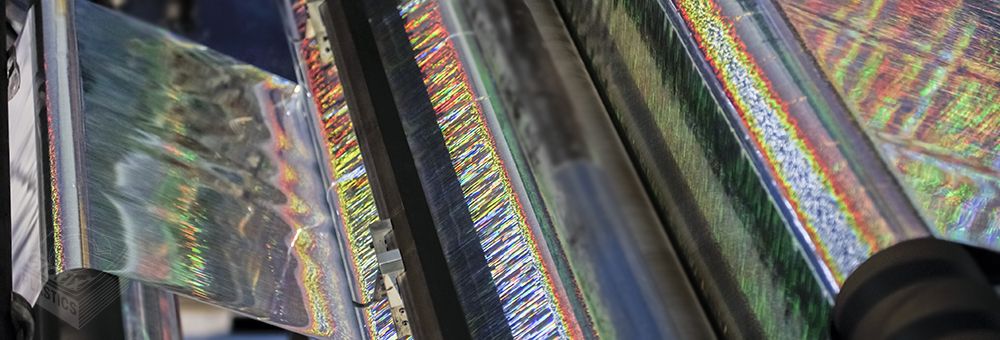
Sorry, we do not!
"Mylar Balloon" materials are NOT made out of Mylar® plastic film. They are made of coated Nylon film that is specially designed to hold helium gas and also be heat-sealable to itself. “Mylar Balloons” are not made of Mylar® brand, or Polyester Film, or DuraLar, or Acetate. Sorry we can't help with this one.
How can I print on DuraLar?

DuraLar, being a general purpose film, is not designed to be printed on per se. However, screen printing is one printing method that seems to consistently work well with this film. We recommend you contact your ink vendor for more information regarding printing on polyester films with the inks you plan to use. For specific conventional printing projects, we can supply particular grades of polyester designed to be printed on via conventional methods. We also carry a line of we also carry a line of digitally printable films in our ComputerGrafix collection of products, which provides you with more printable film options.
– Archival DuraLar™
Is Dura-Bright™ Synthetic Paper Archival?
Dura-Bright Synthetic Paper sheets are not formally considered archival material. Dura-Bright is pH neutral and UV-stable. But because the sheets are thicker and not glass clear, there is no demand for it in archival applications, so the material has not been tested or certified for archival properties.
Are Surface Protection Films (SPF) archival?

Are Surface Protection Films (SPF) archival? No. SPFs have a stick-and-stay adhesive coating on one side, which would interfere with the materials that need protecting. SPFs are pH neutral, and removable, qualities which makes them great for temporary laminations and surface protection, but not for archiving.
How did you want to use this film? If you need a good all-around archival grade film, try our Archival Duralar™ product line which meets the Library of Congress’ specifications for archival polyester film.
Are Shrink-Art films considered archival?

Are Shrink-Art films considered archival? No. Although it is pH neutral, it is not considered archival or suitable for long term archival applications.
If you’re looking for a good all-around archival grade film, try our <Link: Archival Duralar product line >,which meets the Library of Congress’ specifications for archival polyester film. Need more info about shrink film? Check out our <link to the whole shrink film FAQ>.
Is PSA Duralar™ archival?

Is PSA Duralar™ archival? No. Pressure-sensitive adhesive (PSA) Duralar has a stick-and-stay adhesive coating on one side; it breaks the number one rule of archiving – material used for archiving can’t interfere with the materials it is supposed to protect. PSA DuraLar is pH neutral, and water clear, which makes it great for lamination and surface protection, but not for long term archiving.
How did you want to use this film in an archival application? If you need a good all-around archival grade film, try our Archival Duralar™ product line, which meets the Library of Congress’ specifications for archival polyester film.
Are Polypropylene sheets archival?

Are Polypropylene sheets archival? Not really. These materials are pH neutral, and are the most UV-stable materials we stock. But because these materials are thicker sheets and not glass clear, there is no demand for this material in archival applications, so they have not been tested or certified for archival properties.
If you need a good all-around archival grade film, try our Archival Duralar™ product line, which meets the Library of Congress’ specifications for archival polyester film.
Are HDPE sheets archival?

Are HDPE sheets archival? Not really. These materials are pH neutral, and are the most UV-stable materials we stock. But because these materials are thicker sheets and not glass clear, there is no demand for this material in archival applications, so they have not been tested or certified for archival properties.
If you need a good all-around archival grade film, try our Archival Duralar™ product line, which meets the Library of Congress’ specifications for archival polyester film.
Is Metallized DuraLar™ archival?

Is Metallized DuraLar™ archival? No. There are three aspects that go into determining whether a polyester film is actually archival grade: 1- whether it is pH neutral, 2- whether or not the film will impact what it comes in contact with, and 3- whether it can be sonically welded to itself. Metallized DuraLar is a pH neutral polyester film that will not stick or transfer to other surfaces. However, metallized DuraLar is not treated so that it may be sonically welded to itself, and its aluminum metal coating will oxidize over time.
How will you be using this film in an archival application? If you need a good archival grade film, try our Archival Duralar™ product line, which meets the Library of Congress’ specifications for archival polyester film.
Is LaserPro™ considered an archival film?

Is LaserPro™ considered an archival film? Nope. Even though it's made of polyester film, it's laser cuttable release coatings on the surface are not made to be of archival quality.
If you’re looking for a good all-around archival grade film, try our Archival Duralar™ product line which meets the Library of Congress’ specifications for archival polyester film.
Is Flexible PVC film archival?

Is Flexible PVC film archival? No. Flexible PVC film is loaded with plasticizers, to make the PVC soft and flexible. These plasticizers can outgas from the film over time, making Flexible PVC inappropriate as a long term archival storage solution.
How will you be using this film in an archival application? If you need a good archival grade film, try our <Link: Archival Duralar product line>,which meets the Library of Congress’ specifications for archival polyester film.
Is Double Tack™ archival?

Is Double Tack™ archival? No. The first rule for creating archiving materials is that the archival material can’t interfere with the thing it is protecting. DoubleTack has a stick-and-stay adhesive coating on both sides of the polyester carrier film. So it breaks that important rule! DoubleTack is pH neutral, and has good contact clarity, which makes it great for mounting documents and prints, but not for long term archiving.
How will you be using this film in an archival application? If you need a good all-around archival grade film, try our Archival Duralar™ product line, which meets the Library of Congress’ specifications for archival polyester film.
Is drafting film archival?

Is drafting film archival? No, not really. Originally, drafting film was designed to be drawn on by pen and ink, and not change its shape over time. It was meant to be a drawing medium, not a storage medium for documents and periodicals.
How will you be using this film in an archival application? If you need a good all-around archival grade film, try our Archival Duralar™ product line, which meets the Library of Congress’ specifications for archival polyester film.
Are Inkjet-printable Films archival?

Are Inkjet-printable Films archival? No. There are three aspects that go into determining whether a film is actually archival grade: 1- whether it is pH neutral, 2- whether or not the film will impact what it comes in contact with, and 3- whether it can be sonic-ally welded to itself. Inkjet-printable Films are all Clear, pH neutral polyester-based films. The surface treatments on polyester-based film are optimized to support digital printing, and are not considered to be archival. Their ink or toner adhesion properties are counterproductive to the needs of long term archival applications.
How will you be using this film in an archival application? If you need a good all-around archival grade film, try our <Link: Archival Duralar product line > ,which meets the Library of Congress’ specifications for archival polyester film.
Are Laser-printable Films (PPC/Laser) archival?

Are Laser-printable Films (PPC/Laser) archival? No. There are three aspects that go into determining whether a film is actually archival grade: 1- whether it is pH neutral, 2- whether or not the film will impact what it comes in contact with, and 3- whether it can be sonic-ally welded to itself. PPC/Laser Films are all Clear, pH neutral polyester-based films. The surface treatments on these polyester-based films are optimized to support digital printing, and are not considered to be archival. Their ink or toner adhesion properties are counterproductive to the needs of long term archival applications.
How will you be using this film in an archival application? If you need a good all-around archival grade film, try our Archival Duralar product line ,which meets the Library of Congress’ specifications for archival polyester film.
Is Grafix Cling vinyl film archival?

Is Cling vinyl film archival? No. Cling PVC film is loaded with plasticizers, to make the PVC soft and flexible. These plasticizers can outgas from the film over time, making Cling PVC inappropriate for long term archival storage.
How will you be using this film in an archival application? If you need a good archival grade film for your long term storage needs, try our Archival Duralar™ product line, which meets the Library of Congress’ specifications for archival polyester film.
Is ClearLay™ vinyl film and sheets archival?

Is ClearLay™ vinyl film and sheets archival? No. Over a very long time, PVC, including ClearLay, can get brittle and break down. Even though our ClearLay product is pH neutral, and can be easily welded to itself, it can out gas materials. We can not recommend this product for long term archival storage solutions.
How will you be using this film in an archival application? If you need a good, long term, “archival” grade film, try our Archival Dural™r product line, which meets the Library of Congress’ specifications for archival polyester film.
Is Acetate an archival grade film?

Is Acetate an archival grade film? Yes! A pH neutral film, Acetate is breathable, which means it will allow air and moisture to pass through it, making it ideal for storage applications. It will not outgas materials and it can be welded to itself. It is also a clarity film, with optical transmission > 90% and very low haze.
Looking for a good “archival” grade film that is more of a barrier? Try our Archival Duralar™ product line,which meets the Library of Congress’ specifications for archival polyester film.
Is Hazy DuraLar™ archival?

Is Hazy DuraLar™ archival? Yes and no. There are three aspects that go into determining whether a polyester film is actually archival grade: 1- whether it is pH neutral, 2- whether or not the film will impact what it comes in contact with, and 3- whether it can be sonically welded to itself. Hazy DuraLar is a pH neutral polyester film that will not stick or transfer to other surfaces. However, it is not treated so that it may be sonically welded to itself. Further Hazy DuraLar is a translucent film, and generally high clarity films are used in archival applications.
How will you be using this film in an archival application? If you only need a pH neutral film, Hazy DuraLar is an excellent choice. If you also need to sonically weld the film, try our Archival Duralar™ product line, which meets the Library of Congress’ specifications for archival polyester film.
Is Clear DuraLar™ archival?

Is Clear DuraLar™ archival? Yes and no. There are three aspects that go into determining whether a polyester film is actually archival grade: 1- whether it is pH neutral, 2- whether or not the film will impact what it comes in contact with, and 3- whether it can be sonically welded to itself. Clear DuraLar is pH neutral, and will not stick or transfer to other surfaces. Unfortunately, it is not treated so that it may be sonic-ally welded to itself.
How will you be using this film in an archival application? If you only need a high clarity, pH neutral film, Clear DuraLar is an excellent choice. If you also need to sonically weld the film, try our Archival Duralar™ product line, which meets the Library of Congress’ specifications for archival polyester film.
Flexible PVC
Will Flexible Vinyl Sheets Yellow?

Yes, eventually Flexible Vinyl Sheets and Film may start to yellow over a long period of time. The exact time is really dependent on the type of environment that the material is exposed to over the set period of time. There are custom formulations of Vinyl Sheets and Film that are design to extend the time it takes for Vinyl to turn yellow, such as Vinyl used for making outdoor signage.
Grafix Cling Film
Are Clearlay™ vinyl film and sheets suitable for outdoor applications?

Are Clearlay™ vinyl film and sheets suitable for outdoor applications? Not really. Although they may be suitable for some shorter term outdoor projects, they are not made to tolerate high temperatures or excessive exposure to UV light. Long term exposure to the elements can cause the material to yellow, become brittle, or turn hazy. So we cannot recommend them for outdoor applications.
The best products we stock for outdoor use are HDPE and polypropylene. However, it is possible for us to custom source formations of vinyl that are designed to last outdoors for a specific period of time. Many outdoor sign materials are made out of vinyl designed to last five years or more: Please contact us for more information.
What does Static Cling vinyl sheets stick to?

Our stock static cling vinyl works best on glossy, smooth surfaces such as glass and metal. Static cling vinyl sheets will not stick to paper, walls, or wood, or anything even slightly rough. We have a variety of other types of adhesive film and sheets that are designed to stick to these types of surfaces. Contact us today to discuss your project.
How do I clean and/or recharge static cling vinyl sheets ?

If the static cling vinyl sheets become dirty, just clean them with mild soap and water and let air dry. Once the film is dry, the material should cling once again. It is important that both the static cling sheets and the surface to which you're adhering them are dust- and dirt-free.
How do I apply Static Cling vinyl sheets?

Both the static cling vinyl and your surface should be clean and free of any dust, oils or grease. Slowly remove the film from the liner and place the top edge in position, then gently smooth from the top downward and outward to remove air bubbles. You can use an application roller or even a credit card to help remove any bubbles.
Will Static Cling vinyl sheets form around objects?

Static cling vinyl sheets work best when adhered to a flat surface. Any crevices or air pockets will affect how well the film will adhere to an object. But because the film is soft, it should have no problem bending around curved surfaces.
HDPE (High-density Polyethylene)
What is the difference between HDPE and LDPE Plastic Sheets?

Although both materials are polyethylene, they do have different properties. LDPE is softer, more flexible and melts at a lower temperature than HDPE. LDPE is used in sandwich bags and other types of packaging. HDPE is harder, has a higher chemical resistance and can withstand higher temperatures. Grafix stocks HDPE , not LDPE, although LDPE can be purchased on a custom order basis. Production minimums will apply. Talk with your sales rep to discuss your options.
LaserPro™ Laser-cuttable Film
How should I clean LaserPro stencil film?

Before the film is cut, we recommend using only warm soap and water. Household cleaners, many of which are ammonia- or alcohol-based, will change the anti-fuse properties of the surface of the film. This is also the case with solvents like paint thinner. Once the film is cut, however, you may clean it with anything you'd like, even nasty solvents like paint thinner, and turpentine.
Can I print on LaserPro stencil film?

No. Unfortunately, we cannot recommend any printing method for LaserPro stencil films. The very feature that makes it laser-cuttable in stacks is what prevents ink and toner from sticking to its surface. If you need a laser-cuttable film that is also printable, we suggest you look at our Drafting Film products. For more information on this topic, please contact us.
Do you have laser cutting instructions for LaserPro stencil film?

No, we do not. There are many variables that will determine how LaserPro stencil films will cut, such as type of laser machine, setting options, and the thickness of the LaserPro film. LaserPro stencil films were developed more than 15 years ago, to be able to be laser cut in stacks of sheets and not be permanently fused together. There are a wide range of different machines, with different laser powers, and different cutting beds, so it's impossible for us to come up with instructions that fit all circumstances. But we’re happy to provide you with sample sheets free of charge, that you can use to evaluate and test cut.
Mylar® Plastic Film
Can I print on Mylar® plastic film?

There are many different grades of branded polyester film designed to be printed on, including Mylar® brand. There are also many types that should not be printed, or printed only by very specific methods. If you’re interested in Digital Printing, please check out our ComputerGrafix™ products. Contact us today to discuss your printing requirements, so we can help you find the right film.
Do you make “Mylar Balloon” Materials?

Sorry, we do not!
"Mylar Balloon" materials are NOT made out of Mylar® plastic film. They are made of coated Nylon film that is specially designed to hold helium gas and also be heat-sealable to itself. “Mylar Balloons” are not made of Mylar® brand, or Polyester Film, or DuraLar, or Acetate. Sorry we can't help with this one.
Polyester
Do you make “Mylar Balloon” Materials?

Sorry, we do not!
"Mylar Balloon" materials are NOT made out of Mylar® plastic film. They are made of coated Nylon film that is specially designed to hold helium gas and also be heat-sealable to itself. “Mylar Balloons” are not made of Mylar® brand, or Polyester Film, or DuraLar, or Acetate. Sorry we can't help with this one.
How is Polyester Film Fabricated?
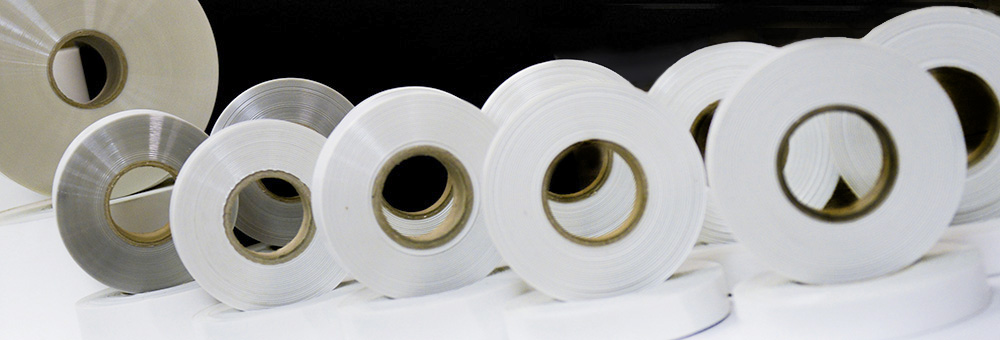
Polyester film can be processed in a variety of methods to take it from its original mill-produced configuration into a format that is compatible with a specific application. We offer several processes such as slitting, rewinding, sheeting, interleaving, laminating and finishing services to help convert our materials into a format that can be used for your application.
Please check out our Converting Services page more detailed information regarding these processes.
What polyester film finishes are available?
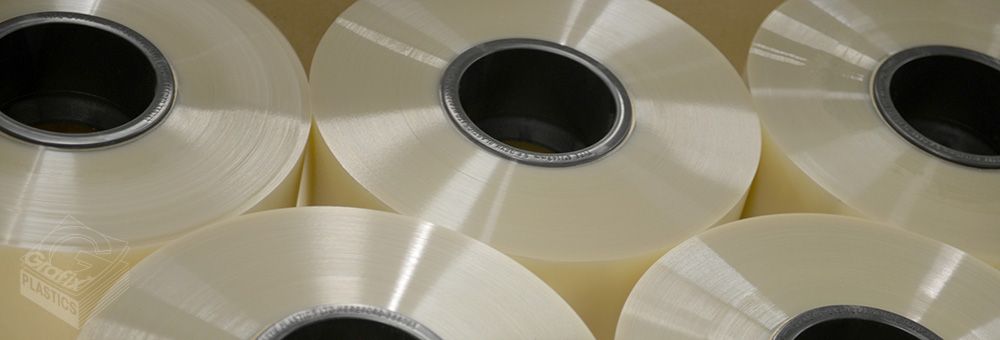
As extruded, there are four general finishes available in polyester film:
Transparent – You are able to see through the film clearly, like looking through glass
Matte Translucent Light passes through, but objects on the other side are not clearly distinguished unless the film is laid flat over them (contact clarity)
Opaque – You are not able to see through the film, and light does not pass through.
Hazy – Light transmission is obscured by particles in the film. Usually you can see through the film, but not clearly. There are different degrees of hazy film available.
Generally, colors other than white and black are rarely made via extrusion, because the minimum production quantities are so large. Color on polyester film is achieved through post- extrusion flood coating. Depending on the nature of your application, we can support this too, on a custom basis. Please contact us today for more information.
Can I print on polyester film?

There are many different grades of polyester film, and some are produced specifically to be printable, using specific methods particular to those film’s chemical properties. Grafix Plastics has a number of specific polyester film solutions for many different printing methods, both conventional and digital. Check out our polyester product pages below for more in-depth information. If you're looking for laser-printable or inkjet-printable films, please check out our Computer Grafix product page.
Polypropylene
Can I get Polypropylene in rolls?

The polypropylene we stock is available in sheets only. We can custom order this material in roll form, but larger production minimums will apply. Please contact your sales rep for more information.
What is the difference between Polypropylene sheets and BOPP film?

Polypropylene sheets are extruded, cooled, and cut into master sheets. Bi-axially oriented polypropylene (BOPP) is polypropylene that is stretched in two directions. This process is only done with thinner films, not the thicker sheets that we stock. This type of film tends to be used in packaging and labeling. We do not stock BOPP, but can provide it on a custom manufactured basis.
Polyseam Artificial Turf Film
What is the best way to cut Polyseam?

Polyseam is made from .005” polyester which is easy to cut with scissors or a box knife. It does not tear easily so a sharp blade should be used and the material will need to be cut completely.
Does Polyseam come with Adhesive?

No, Polyseam is a backer for your adhesive. If you'd like an adhesive coated film with release liner, please check out our Adhesive DuraLar product page.
Properties FAQs
Archival
Is Dura-Bright™ Synthetic Paper Archival?
Dura-Bright Synthetic Paper sheets are not formally considered archival material. Dura-Bright is pH neutral and UV-stable. But because the sheets are thicker and not glass clear, there is no demand for it in archival applications, so the material has not been tested or certified for archival properties.
Are Surface Protection Films (SPF) archival?

Are Surface Protection Films (SPF) archival? No. SPFs have a stick-and-stay adhesive coating on one side, which would interfere with the materials that need protecting. SPFs are pH neutral, and removable, qualities which makes them great for temporary laminations and surface protection, but not for archiving.
How did you want to use this film? If you need a good all-around archival grade film, try our Archival Duralar™ product line which meets the Library of Congress’ specifications for archival polyester film.
Are Shrink-Art films considered archival?

Are Shrink-Art films considered archival? No. Although it is pH neutral, it is not considered archival or suitable for long term archival applications.
If you’re looking for a good all-around archival grade film, try our <Link: Archival Duralar product line >,which meets the Library of Congress’ specifications for archival polyester film. Need more info about shrink film? Check out our <link to the whole shrink film FAQ>.
Is PSA Duralar™ archival?

Is PSA Duralar™ archival? No. Pressure-sensitive adhesive (PSA) Duralar has a stick-and-stay adhesive coating on one side; it breaks the number one rule of archiving – material used for archiving can’t interfere with the materials it is supposed to protect. PSA DuraLar is pH neutral, and water clear, which makes it great for lamination and surface protection, but not for long term archiving.
How did you want to use this film in an archival application? If you need a good all-around archival grade film, try our Archival Duralar™ product line, which meets the Library of Congress’ specifications for archival polyester film.
Are Polypropylene sheets archival?

Are Polypropylene sheets archival? Not really. These materials are pH neutral, and are the most UV-stable materials we stock. But because these materials are thicker sheets and not glass clear, there is no demand for this material in archival applications, so they have not been tested or certified for archival properties.
If you need a good all-around archival grade film, try our Archival Duralar™ product line, which meets the Library of Congress’ specifications for archival polyester film.
Are HDPE sheets archival?

Are HDPE sheets archival? Not really. These materials are pH neutral, and are the most UV-stable materials we stock. But because these materials are thicker sheets and not glass clear, there is no demand for this material in archival applications, so they have not been tested or certified for archival properties.
If you need a good all-around archival grade film, try our Archival Duralar™ product line, which meets the Library of Congress’ specifications for archival polyester film.
Is Metallized DuraLar™ archival?

Is Metallized DuraLar™ archival? No. There are three aspects that go into determining whether a polyester film is actually archival grade: 1- whether it is pH neutral, 2- whether or not the film will impact what it comes in contact with, and 3- whether it can be sonically welded to itself. Metallized DuraLar is a pH neutral polyester film that will not stick or transfer to other surfaces. However, metallized DuraLar is not treated so that it may be sonically welded to itself, and its aluminum metal coating will oxidize over time.
How will you be using this film in an archival application? If you need a good archival grade film, try our Archival Duralar™ product line, which meets the Library of Congress’ specifications for archival polyester film.
Is LaserPro™ considered an archival film?

Is LaserPro™ considered an archival film? Nope. Even though it's made of polyester film, it's laser cuttable release coatings on the surface are not made to be of archival quality.
If you’re looking for a good all-around archival grade film, try our Archival Duralar™ product line which meets the Library of Congress’ specifications for archival polyester film.
Is Flexible PVC film archival?

Is Flexible PVC film archival? No. Flexible PVC film is loaded with plasticizers, to make the PVC soft and flexible. These plasticizers can outgas from the film over time, making Flexible PVC inappropriate as a long term archival storage solution.
How will you be using this film in an archival application? If you need a good archival grade film, try our <Link: Archival Duralar product line>,which meets the Library of Congress’ specifications for archival polyester film.
Is Double Tack™ archival?

Is Double Tack™ archival? No. The first rule for creating archiving materials is that the archival material can’t interfere with the thing it is protecting. DoubleTack has a stick-and-stay adhesive coating on both sides of the polyester carrier film. So it breaks that important rule! DoubleTack is pH neutral, and has good contact clarity, which makes it great for mounting documents and prints, but not for long term archiving.
How will you be using this film in an archival application? If you need a good all-around archival grade film, try our Archival Duralar™ product line, which meets the Library of Congress’ specifications for archival polyester film.
Is drafting film archival?

Is drafting film archival? No, not really. Originally, drafting film was designed to be drawn on by pen and ink, and not change its shape over time. It was meant to be a drawing medium, not a storage medium for documents and periodicals.
How will you be using this film in an archival application? If you need a good all-around archival grade film, try our Archival Duralar™ product line, which meets the Library of Congress’ specifications for archival polyester film.
Are Inkjet-printable Films archival?

Are Inkjet-printable Films archival? No. There are three aspects that go into determining whether a film is actually archival grade: 1- whether it is pH neutral, 2- whether or not the film will impact what it comes in contact with, and 3- whether it can be sonic-ally welded to itself. Inkjet-printable Films are all Clear, pH neutral polyester-based films. The surface treatments on polyester-based film are optimized to support digital printing, and are not considered to be archival. Their ink or toner adhesion properties are counterproductive to the needs of long term archival applications.
How will you be using this film in an archival application? If you need a good all-around archival grade film, try our <Link: Archival Duralar product line > ,which meets the Library of Congress’ specifications for archival polyester film.
Are Laser-printable Films (PPC/Laser) archival?

Are Laser-printable Films (PPC/Laser) archival? No. There are three aspects that go into determining whether a film is actually archival grade: 1- whether it is pH neutral, 2- whether or not the film will impact what it comes in contact with, and 3- whether it can be sonic-ally welded to itself. PPC/Laser Films are all Clear, pH neutral polyester-based films. The surface treatments on these polyester-based films are optimized to support digital printing, and are not considered to be archival. Their ink or toner adhesion properties are counterproductive to the needs of long term archival applications.
How will you be using this film in an archival application? If you need a good all-around archival grade film, try our Archival Duralar product line ,which meets the Library of Congress’ specifications for archival polyester film.
Is Grafix Cling vinyl film archival?

Is Cling vinyl film archival? No. Cling PVC film is loaded with plasticizers, to make the PVC soft and flexible. These plasticizers can outgas from the film over time, making Cling PVC inappropriate for long term archival storage.
How will you be using this film in an archival application? If you need a good archival grade film for your long term storage needs, try our Archival Duralar™ product line, which meets the Library of Congress’ specifications for archival polyester film.
Is ClearLay™ vinyl film and sheets archival?

Is ClearLay™ vinyl film and sheets archival? No. Over a very long time, PVC, including ClearLay, can get brittle and break down. Even though our ClearLay product is pH neutral, and can be easily welded to itself, it can out gas materials. We can not recommend this product for long term archival storage solutions.
How will you be using this film in an archival application? If you need a good, long term, “archival” grade film, try our Archival Dural™r product line, which meets the Library of Congress’ specifications for archival polyester film.
Is Acetate an archival grade film?

Is Acetate an archival grade film? Yes! A pH neutral film, Acetate is breathable, which means it will allow air and moisture to pass through it, making it ideal for storage applications. It will not outgas materials and it can be welded to itself. It is also a clarity film, with optical transmission > 90% and very low haze.
Looking for a good “archival” grade film that is more of a barrier? Try our Archival Duralar™ product line,which meets the Library of Congress’ specifications for archival polyester film.
Is Hazy DuraLar™ archival?

Is Hazy DuraLar™ archival? Yes and no. There are three aspects that go into determining whether a polyester film is actually archival grade: 1- whether it is pH neutral, 2- whether or not the film will impact what it comes in contact with, and 3- whether it can be sonically welded to itself. Hazy DuraLar is a pH neutral polyester film that will not stick or transfer to other surfaces. However, it is not treated so that it may be sonically welded to itself. Further Hazy DuraLar is a translucent film, and generally high clarity films are used in archival applications.
How will you be using this film in an archival application? If you only need a pH neutral film, Hazy DuraLar is an excellent choice. If you also need to sonically weld the film, try our Archival Duralar™ product line, which meets the Library of Congress’ specifications for archival polyester film.
Is Clear DuraLar™ archival?

Is Clear DuraLar™ archival? Yes and no. There are three aspects that go into determining whether a polyester film is actually archival grade: 1- whether it is pH neutral, 2- whether or not the film will impact what it comes in contact with, and 3- whether it can be sonically welded to itself. Clear DuraLar is pH neutral, and will not stick or transfer to other surfaces. Unfortunately, it is not treated so that it may be sonic-ally welded to itself.
How will you be using this film in an archival application? If you only need a high clarity, pH neutral film, Clear DuraLar is an excellent choice. If you also need to sonically weld the film, try our Archival Duralar™ product line, which meets the Library of Congress’ specifications for archival polyester film.
Biodegradability
Is Dura-Bright™ Synthetic Paper biodegradable?
Dura-Bright™ Synthetic Paper is NOT biodegradable. The only biodegradable film product we offer is acetate. However, DuraBright is 100% recyclable with other polypropylenes – as well as phthalate- and lead-free.
Is our circular light diffuser film biodegradable?

Is our circular light diffuser film biodegradable? No, it is not. The only biodegradable film product we offer is Acetate film and sheets.
Is our translucent imaging film biodegradable?

Is our translucent imaging film biodegradable? No, it is not. The only biodegradable film product we offer is acetate film.
Are our surface protection film biodegradable?

Are our surface protection film biodegradable? No, it is not. The only biodegradable film product we offer is acetate film and sheets.
Is our ShrinkArt film biodegradable?

Is our ShrinkArt film biodegradable? No, it is not. The only biodegradable film product we offer is acetate film and sheets.
Are any of our PVC – Vinyl based film and sheets biodegradable?

Are any of our PVC - Vinyl based film and sheets biodegradable? No, they are not. The only bio-degradable film product we offer is acetate film and sheets.
Is polyseam film biodegradable?

Is polyseam film biodegradable? No, it is not. The only biodegradable film product we offer is acetate film and sheets.
Are our HDPE and Polypropylene sheets biodegradable?

Are our HDPE and Polypropylene sheets biodegradable? No, they are not. The only biodegradable film product we offer is acetate film and sheets.
Are any of our polyester film and sheet based products, such as DuraLar, Mylar® plastic film, and others, biodegradable?

Are any of our polyester film and sheet based products, such as DuraLar, Mylar® brand, and others, biodegradable? No, they are not. The only biodegradable film product we offer is acetate film and sheets.
Is LaserPro™ laser-cuttable film biodegradable?

Is LaserPro™ laser-cuttable film biodegradable? No, it is not. The only biodegradable film product we offer is acetate film and sheets.
Is our laser-printable film biodegradable?

Is our laser-printable film biodegradable? No, it is not. The only biodegradable film product we offer is acetate film and sheets.
Is our inkjet-printable film biodegradable?

Is our inkjet-printable film biodegradable? No, it is not. The only biodegradable film product we offer is acetate film and sheets.
Is our DoubleTack® 2 side adhesive film biodegradable?

Is our DoubleTack® 2/side adhesive film biodegradable? No, it is not. The only biodegradable film product we offer is acetate film and sheets.
Is our drafting film biodegradable?

Is our drafting film biodegradable? No, it is not. The only biodegradable film product we offer is acetate film and sheets.
Is our light diffuser paper biodegradable?

Is our light diffuser paper biodegradable? Yes, it is! After all, it’s paper!
Is our acetate film and sheets biodegradable?

Is our acetate film and sheets biodegradable? Yes, it is. Acetate is made from cotton linters and wood pulp. So when put under conditions like composting, it will break down. Check out the spec sheet on our acetate film for more details.
Additionally, our acetate film and sheets can be recycled with paper.
Is Mylar® plastic film Biodegradable?

Mylar® brand is not certified as biodegradable, although it can be recycled through a variety of recycling processes. We stock Acetate Film and Sheets, which are 100% biodegradable and environmently friendly. Contact us to discuss your biodegradability needs today.
DuraLar Biodegradability

Is DuraLar Biodegradable? No. None of our grades of Duralar polyester film is biodegradable! Although it can be recycled through a variety of recycling processes. At Grafix Plastics, we take your polyester film scraps and recycle it, thus avoiding landfill.
If you looking for a biodegradable film, check out:
Contact us for more help on locating a material that works right for you. Please contact us with your requirements today by starting an inquiry.
Electrical
Does Dura-Bright™ Synthetic Paper have good electrical properties?
No. Polypropylenes like Dura-Bright have a low melting point, so you want to keep this material away from elevated temperatures – like the heat generated by electricity. For electrical applications, we recommend our Hazy DuraLar™ polyester film products.
Please contact us today and we can help you with your specific requirements.
Do surface protection films have good electrical properties?

Do surface protection films have good electrical properties? No. Because they are made of polyolefin-based material, they don’t have great heat resistance, nor are their adhesive coatings meant for electrical applications. For electrical applications, we recommend our Hazy DuraLar™ polyester film products.
Please contact today and we can help you with your requirements.
Does ShrinkArt film have good electrical properties?

Does ShrinkArt film have good electrical properties? No. Electricity generates heat; because of ShrinkArt film’s low melt-ing point, you want to keep this material away from elevated temperatures. For electrical applications, we recommend our Hazy DuraLar™ polyester film.
Please contact us today and we can help you with your requirements.
Does PSA DuraLar™ adhesive film have good electrical properties?

Does PSA DuraLar™ adhesive film have good electrical properties? Sort of. As a polyester film, one might expect it to have good electrical properties, however, its adhesive coating is not meant for direct electrical exposures. For electrical applications, we recommend our Hazy DuraLar™ polyester film products.
Please contact us today and we can help you with your requirements.
Does polyseam film have good electrical properties?

Does Polyseam film have good electrical properties? Yes, because it’s made out of polyester film. However, for electrical applications, we recommend our Hazy DuraLar™ polyester film products.
Please contact us today and we can help you with your requirements.
Do HDPE and Polypropylene sheets have good electrical properties?

Do HDPE and Polypropylene sheets have good electrical properties? No. Electricity generates heat, but because of polyolefin’s low melting point, you want to keep this material away from elevated temperatures. For electrical applications, we recom-mend our Hazy DuraLar™ polyester film products.
Please contact us today and we can help you with your requirements.
Does Metallized DuraLar™ film have good electrical properties?

Does Metallized DuraLar™ film have good electrical properties? Depending on what electrical properties you need. Metallized DuraLar is made from our Clear DuraLar base film. So the film itself has excellent resistive electrical properties (acting as an insulator). The metal-coated side of the film is very conductive. With Metallized DuraLar you get the best of both worlds. If that’s what you want.
Does LaserPro™ laser cuttable films have good electrical properties?

Does LaserPro™ laser cuttable films have good electrical properties? Yes, sort of, because it’s made out of Hazy DuraLar™ polyester film. However, its surface coatings are not meant for direct electrical exposure, and we don’t have any testing data on this product under those conditions. For electrical applications, we recommend our Hazy DuraLar™ polyester film products.
Please contact us today and we can help you with your requirements.
Does Hazy DuraLar™ polyester film have good electrical properties?

Does Hazy DuraLar™ polyester film have good electrical properties? Yes! Its combination of resistive, thermal, and chemical properties make it an excellent film to be used in direct and indirect electrical ap-plications, like wiring, motor windings, driver electronics, and circuit board construction. It is also certified to UL VTM-2 flame resistance standards.
Does Cling vinyl film have good electrical properties?

Does Cling vinyl film have good electrical properties? No, mostly because of Cling PVC’s low melting point. Electricity generates heat, and you want to keep this material away from elevated temperatures because of that low melting point. For electrical applications, we recommend our Hazy DuraLar™ polyester film products.
Please contact us today and we can help you with your requirements.
Does flexible PVC film have good electrical properties?

Does flexible PVC film have good electrical properties? No, mostly because of its low melting point. Electricity generates heat, and you want to keep this material away from elevated temperatures to keep it from melting. For electrical applications, we recommend our Hazy DuraLar™ polyester film products.
Please contact us today and we can help you with your requirements.
Does DoubleTack® 2/side adhesive film have good electrical properties?

Does DoubleTack® 2/side adhesive film have good electrical properties? Sort of. Although it’s made out of polyester, its adhesive coating is not meant for direct electrical exposure, and we don’t have any test-ing data on this product. For electrical applications, we recommend our Hazy DuraLar™ polyester film products.
Please contact us today and we can help you with your requirements
Does drafting film have good electrical properties?

Does drafting film have good electrical properties? Sort of. Although it’s made out of polyester, its drafting coatings are not meant for direct electrical exposure, and we don’t have any test-ing data on this product. For electrical applications, we recommend our Hazy DuraLar™ polyester film products.
Please contact us today and we can help you with your requirements.
Does light diffusion paper have good electrical properties?

Does light diffusion paper have good electrical properties? No! It’s paper! For electrical applications, we recommend our Hazy DuraLar™ polyester film products.
Please contact us today and we can help you with your requirements.
Does Clearlay™ vinyl film and sheets have good electrical properties?

Does Clearlay™ vinyl film and sheets have good electrical properties? No, mostly because of ClearLay’s low melting point. Because electricity generates heat, you want to keep this material away from elevated temperatures. For electrical applications, we recommend our Hazy DuraLar™ polyester film products.
Please contact us today and we can help you with your requirements.
Do ComputerGrafix digital printable films have good electrical properties?

Do ComputerGrafix digital printablel films have good electrical properties? Sort of. Although it’s made out of polyester, its coatings are not meant for direct electrical exposure, and we don’t have any testing data on this product. For electrical applications, we recommend our Hazy DuraLar™ polyester film products.
Please contact us today and we can help you with your requirements.
Does Clear DuraLar™ film and sheets have good electrical properties?

Does Clear DuraLar™ film and sheets have good electrical properties? Yes! Clear DuraLar’s combination of resistive, thermal and chemical properties make it an excellent clear film to be used in direct and indirect electrical applications. For more demanding electrical applications like wiring, motor windings, driver electronics, and circuit board construction, our Hazy DuraLar is optimized for electrical applications, and is certified to UL VTM-2 electrical standards.
Please see the Clear and Hazy DuraLar spec sheets for specifics.
Does circular light diffuser film have good electrical properties?

Does circular light diffuser film have good electrical properties? Sort of. Although it’s made out of polyester, its high performance light diffusion coatings are not meant for direct electrical exposure, and we don’t have any testing data on this product in applications where the film is being directly exposed to electrical current. For electrical applications, we recommend our Hazy DuraLar™ polyester film products.
Please contact us today and we can help you with your requirements.
Does Asymmetric light diffuser film have good electrical properties?

Does Asymmetric light diffuser film have good electrical properties? Sort of. Although it’s made out of polyester, it’s not meant for direct electrical exposure, and we don’t have any testing data on this product. For electrical applications, we recommend our Hazy DuraLar™ polyester film products.
Please contact us today and we can help you with your requirements.
Does Archival DuraLar™ film and sheets have good electrical properties?

Does Archival DuraLar™ film and sheets have good electrical properties? Yes! Archival DuraLar’s combination of resistive, thermal and chemical properties make it an excellent archival film to be used in direct and indirect applications. For more demanding electrical applications like wiring, motor windings, driver electronics, and circuit board construction, our Hazy DuraLar™ is optimized for electrical applications, and is certified to UL VTM-2 electrical standards.
Please see the Archival and Hazy DuraLar spec sheets for specifics.
Food Safety
Is ShrinkArt film approved for direct food contact?

Is ShrinkArt film approved for direct food contact? No. Grafix stocks other types of film products that are, includ-ing acetate, specific brands and grades of polyester film, HDPE and polypropylene. Other types of food-safe films are available as a custom order; larger production minimums may apply.
Is Polyseam approved for direct food contact?

Is Polyseam approved for direct food contact? No. Grafix stocks other types of film products that are, including Aacetate, specific brands and grades of polyester film, HDPE and polypropylene. Other types food-safe films are available as a custom order; larger production minimumsmay apply to your order.
Are our HDPE and polypropylene sheet products approved for food contact?

Are our HDPE and polypropylene sheet products approved for food contact? Yes! This entire product line is suitable for use in contact with foodstuffs. It complies with FDA, Code of Federal Regulations, Title 21 (revised April 1995). We can even provide certification to this effect; just let us know you need one when you contact us to discuss your requirements further.
Is Metallized DuraLar™ approved for direct food contact?

Is Metallized DuraLar™ approved for direct food contact? No, it is not. Grafix regularly carries other types of film products that are approved, including acetate, specific brands and grades of polyester film, HDPE and polypropylene. Unfortunately most of these materials are available with a metallized coating. Other types food-safe films are available as a custom order; larger pro-duction minimums may apply.
Is LaserPro™ approved for direct food contact?

Is LaserPro™ approved for direct food contact? No. Grafix stocks other types of film products that are, including acetate, specific brands and grades of polyester film, HDPE and polypropylene. Other types food-safe films are available as a custom order; larger production minimums may apply.
Is Hazy DuraLar™ approved for direct food contact?

Is Hazy DuraLar™ approved for direct food contact? No. Grafix stocks other types of film products that are, including acetate, specific brands and grades of polyester film, HDPE and polypropylene. Other types food-safe films are available as a custom order; larger production minimums may apply.
Are flexible PVC (vinyl) film and sheets food-safe?

Are flexible PVC (vinyl) film and sheets food-safe? No. Grafix stocks other types of film products that are food-safe, including acetate, specific brands and grades of polyester film, HDPE and polypropylene. Other types food-safe films are available as a custom order; larger production minimums may apply.
Is drafting film approved for direct food contact?

Is drafting film approved for direct food contact? No. Grafix stocks other types of film products that are, including acetate, specific brands and grades of polyester film, HDPE and polypropylene. Other types food-safe films are available as a custom order; larger production minimums may apply.
Is Cling vinyl film food-safe?

Is Cling vinyl film food-safe? No, they are not. Grafix stocks other types of film products that are, including acetate, specific brands and grades of polyester film, HDPE and polypropylene. Other types food-safe films are available as a custom order; larger production minimums may apply.
Are ClearLay™ vinyl film and sheets food-safe?

Are ClearLay™ vinyl film and sheets food-safe? No. Grafix stocks other types of film products that are, including acetate, specific brands and grades of polyester film, HDPE and polypropylene. Other types food-safe films are available as a custom order; larger pro-duction minimums may apply.
Is Clear DuraLar™ approved for direct food contact?

Is Clear DuraLar™ approved for direct food contact? No. Grafix stocks other types of film products that are, including acetate, specific brands and grades of polyester film, HDPE and polypropylene. Other types food-safe films are available as a custom order; larger production minimums may apply.
Is Archival DuraLar™ approved for direct food contact?

Is Archival DuraLar™ approved for direct food contact? No. Grafix stocks other types of film products that are, includ-ing acetate, specific brands and grades of polyester film, HDPE and polypropylene. Other types food-safe films are available as a custom order; larger production minimums may apply.
Are any of our optical films, including our various diffuser film and paper, approved for direct food contact?

Are any of our optical films, including our various diffuser film and paper, approved for direct food contact? No. Grafix stocks other types of film products that are, including acetate, specific brands andgrades of polyester film, HDPE and polypropylene. Other types food-safe films are available as a custom order; larger production minimums may apply.
Are any of our ComputerGrafix films approved for direct food contact?

Are any of our ComputerGrafix films approved for direct food contact? No. Grafix stocks other types of film products that are, including acetate, specific brands and grades of polyester film, HDPE and polypropylene. Other types food-safe films are available as a custom order; larger production minimum order may apply.
Are any of our adhesive film products approved for direct food contact?

Are any of our adhesive film products approved for direct food contact? No,they are not. Grafix stocks other types of film products that are, including acetate, specific brands and grades of polyester film, HDPE and polypropylene. Other types food-safe films are available as a custom order; larger production minimum order may apply.
Are our acetate film and sheet products approved for food contact?

Are our acetate film and sheet products approved for food contact? Yes! This entire product line is suitable for use in con-tact with foodstuffs. It complies with FDA, Code of Federal Regulations, Title 21 (revised April 1995). Need us to provide a certification? No problem. Just let us know when you contact us to discuss your requirements.
Are Vinyl Sheets Food Safe?
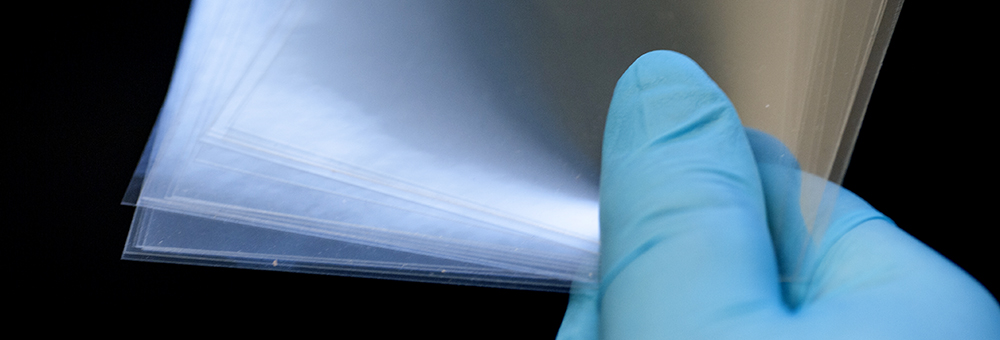
Our stock Vinyl Sheets are not certified for contact with food. Grafix stocks other products that are FDA certified such as Acetate, HDPE & Polypropylene, and select grades of Polyester Film. We can custom source food safe vinyl sheets and film on a special order basis.
Is Mylar® plastic film safe for food contact?

There are very specific grades of Mylar® brand, and other branded Polyester Film, that are certified for contact with food. Those need to be sourced on a specific custom basis. Grafix stocks other products that are FDA certified such as Acetate, Specific Grades of Polyester Film, HDPE & Polypropylene. Other food-safe films are available to special order but will be subject to larger production minimums. Please contact us today to discuss your requirements.
Is DuraLar Food Safe?

Duralar is not certified for contact with food. Grafix stocks other products that are FDA certified such as Acetate, Specific Grades of Polyester Film, HDPE & Polypropylene. Other food safe films are available to special order but will be subject to larger production minimums. Contact us today with your requirements, and let us try and help you locate what you need.
Insulation
Does translucent imaging film have good insulation properties?

Does translucent imaging film (TIF) have good insulation properties? Sort of. TIF is made from polyester film, which has great insulation properties. However, its functional coatings are not meant for exposure to either elevated or reduced temperatures. Therefore, we can not recommend this material for any sort of insulation application.
Do our surface protection films (SPF) have good insulation properties?

Do our surface protection films (SPF) have good insulation properties? Not really. Our SPF films are not designed to be exposed to either elevated or reduced temperatures.
However, we can, on a custom basis, make you a pressure-sensitive adhesive (PSA) film with adhesives that are optimized for use in specific elevated or reduced temperature environments. Minimums will apply.
Do our DuraLar™ pressure-sensitive adhesive films (PSA) have good insulation properties?

Do our DuraLar™ pressure-sensitive adhesive films (PSA) have good insulation properties? Sort of. PSA film is made from polyester film, which has great insulation properties. However, its adhesive coatings are not meant for exposure to elevated or reduced temperatures. Therefore we can not recommend this material for any sort of insulation application.
We can, on a custom basis, make you a PSA film with adhesives that are optimized for exposure to a specific elevated or reduced temperature. Minimums will apply.
Do polypropylene sheets (PP) have good insulation properties?

Do polypropylene sheets (PP) have good insulation properties? Yes, but not as good as those of polyester film products. PP sheets are not as heat-resistant, but hold up very well in cold temperatures.
Does Metallized DuraLar™ reflective film have good insulation properties?

Does Metallized DuraLar™ reflective film have good insulation properties? Yes! Its combination of thermal and barrier properties make it an excellent film for many thermal insulation applications. Its metal coating also acts as a barrier enhancement, while reflecting in-frared radiation. All polyester films have very good insulation properties; Metallized DuraLar takes that performance to the next level.
Does LaserPro™ laser cuttable film have good insulation properties?

Does LaserPro™ laser cuttable film have good insulation properties? Sort of. LaserPro is made from polyester film, which has great insulation properties. However, its functional coatings are not meant for exposure to elevated or reduced temperatures. Therefore we can not recommend this material for any sort of insulation application.
Does ComputerGrafix™ laser-printable film have good insulation properties?

Does ComputerGrafix™ laser-printable film have good insulation properties? Sort of. Laser-printable film is made from polyester film, which has great insulation properties. However, its functional coatings are not meant for exposure to elevated or reduced temperatures. Therefore we can not recommend this material for any sort of insulation application.
Does ComputerGrafix™ inkjet-printable film have good insulation properties?

Does ComputerGrafix™ inkjet-printable film have good insulation properties? Sort of. Inkjet-printable film is made from polyester film, which has great insulation properties. However, its functional coatings are not meant for exposure to elevated or reduced temperatures. Therefore we can not recommend this material for any sort of insulation application.
Do HDPE sheets have good insulation properties?

Do HDPE sheets have good insulation properties? Yes, but not as good as those of polyester film products. Because HDPE is a polyethylene polymer, it’s not as heat-resistant as polyester film. Where HDPE excels is in low temperature applications. HDPE can be cooled down to -100 degrees Fahrenheit without becoming brittle.
Does Hazy DuraLar™ film and sheets have good insulation properties?

Do Hazy DuraLar™ film and sheets have good insulation properties? Yes, due to Duralar's combination of thermal and barrier properties. As a matter of fact, all polyester films have very good insulation properties. If you’re looking for a product that is optimized for insulation applications, your best bet is Metallized DuraLar film.
Does flexible PVC film and sheets have good insulation properties?

Does flexible PVC film and sheets have good insulation properties? Yes. Flexible PVC is a vinyl polymer. It’s not as resistant to high temperatures, but it excels in low temperature applications. In fact, vinyl films are widely used in refrigeration units.
Does DoubleTack® have good insulation properties?

Does DoubleTack® 2/side adhesive film have good insulation properties? Sort of. DoubleTack is made from polyester film, which has great insulation properties. However, its adhesive coatings are not meant for expo-sure to elevated or reduced temperatures. Therefore we can not recommend this material for any sort of insulation application.
We can, on a custom basis, make you a pressure-sensitive adhesive (PSA) film with adhesives that are optimized for exposure to a specific elevated or reduced temperature. Minimums will apply.
Does drafting film have good insulation properties?

Does drafting film have good insulation properties? Sort of. Drafting film is made from polyester film, which has great insulation properties. However, its functional coatings are not meant for exposure to elevated or reduced temperatures. Therefore we can not recommend this material for any sort of insulation application.
Does Cling vinyl film have good insulation properties?

Does Cling PVC vinyl film have good insulation properties? Yes. Cling PVC film is a vinyl polymer. It’s not as resistant to high temperatures as polyester films, but vinyl excels in low temperature applications. In the case of Cling, it is possible that extreme low temperatures could cause the film to loose its “tack” and become less sticky. But that should not affect its insulation properties.
Does ClearLay™ vinyl film have good insulation properties?

Does ClearLay™ vinyl film have good insulation properties? Yes, at colder temperatures. Like other vinyl polymers, ClearLay is not very resistant to high temperatures, but it excels in low tempera-ture applications. ClearLay can be cooled down to -40 degrees Fahrenheit and still maintain its properties.
Does Clear DuraLar™ polyester film and sheets have good insulation properties?

Does Clear DuraLar™ polyester film and sheets have good insulation properties? Yes, because of its combination of thermal and barrier properties. As a matter of fact, all polyester films have very good insulation properties. If you need a product that is optimized for insulation applications, check out our Metallized DuraLar™ film products.
Does Archival DuraLar™ film and sheets have good insulation properties?

Does Archival DuraLar™ film and sheets have good insulation properties? Yes, because of its combination of thermal and barrier properties. As a matter of fact, all polyester films have very good insulation properties. If you’re looking for a product that is optimized for insulation applications, try our Metallized DuraLar™ film products.
Does acetate film and sheet products have good insulation properties?

Does acetate film and sheet products have good insulation properties? Yes. But not as good as those of polyester film products. Acetate is not as heat- resistant as polyester film, but holds up very well in cold temperatures.
Medical / Skin Contact
Are Dura-Bright™ Synthetic Paper sheets approved for medical uses / direct skin contact?
Although polypropylene materials are perfectly safe for general purpose direct and indirect skin contact, Dura-Bright sheets are not certified for medical applications.
Are ShrinkArt films approved for direct skin contact?

Are ShrinkArt films approved for direct skin contact? Although, ShrinkArt films are perfectly safe for direct and indirect skin contact, they are not certified as such.
Are polypropylene sheets approved for direct skin contact?

Are polypropylene sheets approved for direct skin contact? Although polypropylene is perfectly safe for direct and indirect skin contact, it is not certified as such.
Is polyseam film approved for direct and indirect skin contact?

Is polyseam film approved for direct and indirect skin contact? Although polyseam is perfectly safe for direct and indirect skin contact, it is not certified as such.
Is Metallized DuraLar™ film approved for direct skin contact?

Is Metallized DuraLar™ film approved for direct skin contact? Although Metallized DuraLar is perfectly safe for direct and indirect skin contact, it is not certified as such.
Are Laserpro™ film and sheet products approved for direct skin contact?

Are Laserpro™ film and sheet products approved for direct skin contact? Although LaserPro is perfectly safe for direct and indi-rect skin contact, it is not certified as such.
Are HDPE sheets approved for direct and indirect skin contact?

Are HDPE sheets approved for direct and indirect skin contact? Although HDPE is perfectly safe for direct and indirect skin contact, it is not certified as such.
Is Hazy DuraLar™ film and sheets approved for direct skin contact?

Is Hazy DuraLar™ film and sheets approved for direct skin contact? Although Hazy DuraLar is perfectly safe for direct and indirect skin contact, it is not certified as such.
None of our stock films have this certification, however we can source an appropriate film for this sort of application, if need be.
Contact us today with your requirements, and let us try and help you locate what you need.
Is flexible vinyl ( PVC ) film approved for direct and indirect skin contact?

Is flexible vinyl ( PVC ) film approved for direct and indirect skin contact? Although flexible PVC is perfectly safe for direct and indirect skin contact, it is not certified as such.
Is Drafting Film approved for direct and indirect skin contact?

Is Drafting Film approved for direct and indirect skin contact? Although drafting film is perfectly safe for direct and in-direct skin contact, it is not certified as such.
Are light diffuser papers approved for direct and indirect skin contact?

Are light diffuser papers approved for direct and indirect skin contact? Although light diffusers papers are perfectly safe for direct and indirect skin contact, they are not certified as such.
Is Cling vinyl film approved for direct and indirect skin contact?

Is Cling vinyl film approved for direct and indirect skin contact? Although Cling vinyl is perfectly safe for direct and indirect skin contact, it is not certified as such.
Is ClearLay™ vinyl film and sheets approved for direct and indirect skin contact?

Is ClearLay™ vinyl film and sheets approved for direct and indirect skin contact? Although ClearLay is perfectly safe for direct and indirect skin contact, it is not certified as such.
Is Clear DuraLar™ film and sheets certified for direct and indirect skin contact?

Is Clear DuraLar™ film and sheets certified for direct and indirect skin contact? Although Clear DuraLar is perfectly safe for direct and indirect skin contact, it is not certified as such. Need polyester film that is certified for direct skin contact? Let us know and we can source that for you. Minimum order requirements will apply.
Are circular light diffuser films approved for direct and in-direct skin contact?

Are circular light diffuser films approved for direct and in-direct skin contact? Although circular light diffusers are perfectly safe for direct and indirect skin contact, they are not certified as such.
Is asymmetric light diffuser film approved for direct and indirect skin contact?

Is asymmetric light diffuser film approved for direct and indirect skin contact? Although asymmetric light diffusers are perfectly safe for direct and indirect skin contact, they are not certified as such.
Is Archival DuraLar™ certified for direct and indirect skin contact?

Is Archival DuraLar™ certified for direct and indirect skin contact? Although Archival DuraLar is perfectly safe for direct and indirect skin contact, it is not certified as such.
Are ComputerGrafix printable films approved for direct and indirect skin contact?

Are ComputerGrafix printable films approved for direct and indirect skin contact? Although ComputerGrafix films are perfectly safe for direct and indirect skin contact, they are not certified as such. To achieve good results with this product, you don’t want to touch ComputerGrafix films prior to printing anyway; touching the substrate can cause finger printing, smudges, and poor print quality in the spots where the film was touched.
Are Grafix Plastics’ adhesive film and sheet products approved for direct and indirect skin contact?

Are Grafix Plastics’ adhesive film and sheet products approved for direct and indirect skin contact? Although our adhesive films are perfectly safe for direct and indirect skin contact, they are not certified as such.
Are acetate film and sheet approved for direct and indirect skin contact?

Are acetate film and sheet approved for direct and indirect skin contact? Although acetate is perfectly safe for direct and indirect skin contact, it is not certified as such.
Outdoor / UV Exposure
Are Dura-Bright™ Synthetic Papers suitable for outdoor use?
Yes! That’s where Dura-Bright really shines. Not only is it waterproof and tear resistant, this polymer is naturally UV resistant! The product does not have a specific outdoor lifetime rating; product lifetime outdoors will vary with the outdoor conditions the film is exposed to.
Is our translucent imaging film suitable for outdoor use?

Is our translucent imaging film (TIF) suitable for outdoor use? No. Our TIF film is not made to withstand direct exposure to ultraviolet light or moisture. If you need to use this material outside, it must be contained in something else that will protect it from being exposed to UV and moisture.
Are surface protection films suitable for outdoor use?

Are surface protection films suitable for outdoor use? No. Extended exposure to moisture disrupts the adhesion of the film to the surface it’s designed to protect. If you need to use this material outside, it must be contained in something else that will keep it from being exposed to moisture.
Is ShrinkArt film suitable for outdoor use?

Is ShrinkArt film suitable for outdoor use? No. Our ShrinkArt film is not made to withstand extended exposure to ultraviolet light or moisture. If you need to put this material outside, it must be contained in something else that will keep it from being exposed to UV and moisture.
Are PSA Duralar™ films suitable for outdoor use?

Are PSA Duralar™ films suitable for outdoor use? No. Our PSA Duralar films is not made to be used outside because when exposed to ultraviolet light or moisture, the adhesive will loose it’s tack and breakdown. If you need to put this material outside, it must be contained in something else that will keep it from be-ing exposed to UV and moisture.
Is Polyseam able to be used outdoors?

Is Polyseam able to be used outdoors? Yes, but not with the film directly exposed to the elements. In it’s application, it is to be used as an adhesive carrier under artificial turf material. As such Polyseam is underneith artificial turf, and is not directly exposed to the elements. When used in its intended application, Polyseam can be used in outdoor applications.
Are polypropylene sheets suitable for outdoor use?

Are polypropylene sheets suitable for outdoor use? Yes! Polypropylene is a stable material under outdoor conditions. It does not, however, have a specific life time rating; product life time will vary with the outdoor conditions to which the film is exposed.
Is Light Diffuser Paper suitable for outdoor use?

Is our diffuser paper appropriate to use outdoors? No it’s not! After all, it’s paper.
Is Metallized DuraLar™ suitable for outdoor exposure?

Is Metallized Duralar™ suitable for outdoor use? No. If sub-jected to sun and rain, the aluminum metal level on top of the film will corrode and fade quickly. This is not an appropriate film for outdoor use.
Looking for film products that perform well under longer term outdoor or UV exposure? Check out our HDPE and Polypropylene product pages.
Is LaserPro™ stencil film suitable for outdoor use?

Is LaserPro™ stencil film suitable for outdoor use? No. If exposed to ul-traviolet light or moisture, LaserPro will become brittle and loose it’s properties If you need to put this material outside, it must be contained in something else that will keep it from being exposed to UV and moisture.
Is our Laser-printable film suitable for outdoor use?

Is our Laser-printable film suitable for outdoor use? No. If exposed to outdoor conditions will ruin the printed surface. If you need to use this material outside, it must be contained in something else that will keep it from being exposed to UV and moisture.
Is our inkjet film suitable for outdoor use?

Is our inkjet film suitable for outdoor use? No. Our Inkjet Film is not made to be used outside. If you need to put this material outside, it must be contained in something else, that will keep it from being exposed to UV and moisture, so that the printed surface doesn’t run.
Are HDPE sheets suitable for outdoor use?

Are HDPE sheets suitable for outdoor use? Yes they are. HDPE is a stable polymer material for outdoor use. It does not, however, have a specific life time rating. Product life time will vary with the outdoor conditions to which the film is exposed.
Is Hazy DuraLar™ film and sheets suitable for outdoor use?

Is Hazy DuraLar™ film and sheets suitable for outdoor use? It depends on how long you plan to use it outdoors. For less than one year? Yes, Hazy DuraLar is suitable for outdoor use. For longer term exposure? No. Long-term exposure to the outdoor elements, especially UV light, can cause Hazy DuraLar to yellow, and become brittle. Hazy DuraLar can be custom manufactured to be UV-resistant; production quantity minimums will apply
For a product that holds up well for the long term under outdoor conditions, or UV exposure, check out our HDPE and polypropylene sheets.
Are flexible PVC film and sheets suitable for outdoor applications?

Are flexible PVC film and sheets suitable for outdoor applications? No! Although they may be suitable for some shorter term outdoor projects, they do not tolerate high temperatures or excessive exposure to UV light. Long term exposure to the elements can cause the material to yellow, become brittle or turn hazy.
The best products we stock for outdoor use are HDPE and polypropylene. However, it is possible for us to custom source formations of vinyl designed to last outdoors for a specific period of time. Many outdoor sign materials are made out of vinyl designed to last five years or more: Please contact us for more information.
Is DoubleTack® 2 side adhesive film suitable for outdoor use?

Is DoubleTack® adhesive film suitable for outdoor use? No. Our Double Tack is not made to be used outside because if exposed to UV light and moisture over time, the film’s adhesive layer will lose its adhesive strength.. If you need to use this material outside, it must be contained in something else that will keep it from being exposed to UV and moisture.
Is drafting film suitable for outdoor use?

Is drafting film suitable for outdoor use? No. If exposed to ultraviolet light or moisture, our drafting film will lose its surface quality and film integrity. If you need to use this material outside, it must be contained in something else that will keep it from being exposed to UV and moisture
Is Cling vinyl film suitable for outdoor applications?

Is Cling vinyl film suitable for outdoor applications? No! Although it may be suitable for some shorter term outdoor projects, it does not tolerate high temperatures or exposure to excessive UV light. Long term exposure to the elements can cause the material to yellow, become brittle, or turn hazy. The best products we stock for outdoor use are HDPE and polypropylene. However, it is possible for us to custom source formations of vinyl that are designed to last outdoors for a specific period of time. Many outdoor sign materials are made out of vinyl designed to last five years or more: Please contact us for more information.
Are Clearlay™ vinyl film and sheets suitable for outdoor applications?

Are Clearlay™ vinyl film and sheets suitable for outdoor applications? Not really. Although they may be suitable for some shorter term outdoor projects, they are not made to tolerate high temperatures or excessive exposure to UV light. Long term exposure to the elements can cause the material to yellow, become brittle, or turn hazy. So we cannot recommend them for outdoor applications.
The best products we stock for outdoor use are HDPE and polypropylene. However, it is possible for us to custom source formations of vinyl that are designed to last outdoors for a specific period of time. Many outdoor sign materials are made out of vinyl designed to last five years or more: Please contact us for more information.
Is Clear DuraLar™ film and sheets suitable for outdoor use?

Is Clear DuraLar™ film and sheets suitable for outdoor use? For less than one year? Yes. For longer term exposure? No. Long term exposure to the outdoors, especially to ultraviolet light, can cause the Clear DuraLar to yellow, become brittle, and turn hazy. Clear DuraLar can be custom manufactured to be UV resistant; production quantity minimums will apply to your order.
For film and sheets that perform better under longer term out-door or UV exposure conditions, check out our HDPE and polypropylene sheets.
Printability
How can I print on Dura-Bright™ Synthetic Papers?
Printability is one of Dura-Bright™’s best qualities. Dura-Bright is compatible with screen printing and offset lithography. Before you attempt to print on this type of material, we strongly recommend you contact your ink vendor to see what types of inks can be used with polypropylene sheets. We can even provide you with sample sheets of Dura-Bright, which you can have your ink vendor analyze to determine the best ink systems to work with your process.
Dura-Bright synthetic paper is solvent inkjet ink printable; however, other types of inkjet ink will not stick to the surface of this film.
Dura-Bright can also be printed on low-temperature PPC/Laser equipment. If you aren’t sure if your PPC/Laser printer is low temperature, please check with your manufacturer before trying this out.
Contact us today with your printing requirements so we can help you get the correct material for your specific needs.
Can I print on plastic film and sheets?

Printing on plastic film and sheets is a very common application. However, the techniques used to print on the vast number of different plastics is very detailed. Usually, the method and techniques chosen have to do with the plastic material itself, as well as the type of printing.
In general, there are two types of printing – conventional and digital. With respect to our plastic film and sheet products, there are three levels of “printability”. A plastic film or sheet product either:
1) is printable with the specific technology/ink/equipment
2) can be printed with the specific technology/ink/equipment, BUT is not specifically designed to be printed this way. (In these cases, we recommend you test the product extensively with your printing process in order to determine whether the product you want will be printable.**)
3) is NOT printable with the specific technology/ink/equipment, and printing should not be attempted.
With regard to conventional printing applications, many of our commodity plastic film and sheet products fall under the second level of printability. In digital printing applications, all three levels can apply; here’s where Grafix saves the day (!) helping you understand what your material possibilities are given the method of printing your project will employ.
For more direct assistances from our expert staff, please start an inquiry with your specific plastic film or sheet printing requirements
How can I print on DFML?

DFML can be printed on its gloss side, by Screen Printing, or Offset Lithography. DFML might be suitable for Solvent, Latex or UV Curable Inkjet printing, which are the only digital printing options could work on DFML. DO NOT USE DFML in any plain paper copier, laser printer, or other heat fusing digital printing technology.
How can Shrink-Art Film be printed?

Our plain Shrink-Art Film is mostly screen printable, although it should also be printable via other conventional printing methods. Please consult your ink vendor for specifics on ink formulations, etc. For digital printing we offer our Desktop Inkjet Printable Shrink-Art Film, designed for consumer grade inkjet printers. DO NOT put these products through PPC/Laser or any other heat fuser digital printing process.
How can Protective Film be printed on?

Most of our Protective Films are compatible with screen printing, however we recommend you provide samples to your ink vendor for testing. It is not designed for any other printing methods. Our Protective Films are not printable by Digital processes such as Inkjet or PPC/Laser.
Is DuraLar Adhesive Backed Film printable?

DuraLar Adhesive Back Film is not designed to be printed specifically, By enlarge our DuraLar films are able to be screen printed. We recommend you contact your ink vendor for more information on printing on Polyester Film. This product is not designed for digital printing. For digital printing on Adhesive Backed Film, please check out our ComputerGrafix films.
How can I print on Polypropylene Plastic Sheets?

Polypropylene sheets are compatible with screen printing and offset-lithography. Before you attempt to print on this type of material please contact your ink vendor to see what types of inks can be used with Polypropylene sheets. We can even provide you with sample sheets of material, that you can then have your ink vendor analyze to determine the best ink systems to work with your process. This material is NOT printable by digital methods, especially PPC/Laser printing. Further, inkjet ink, unless it's solvent ink, with not stick to the surface of this film. Contact us today with your printing requirements so we can help you get the material you need.
How can I print on HDPE Plastic Sheets?

HDPE sheets are compatible with screen printing and offset-lithography. Before you attempt to print on this type of material please contact your ink vendor to see what types of inks can be used with HDPE sheets. We can even provide you with sample sheets of material, that you can then have your ink vendor analyze to determine the best ink systems to work with your process. This material is NOT printable by digital methods, especially PPC/Laser printing. Further, inkjet ink, unless it's solvent ink, with not stick to the surface of this film. Contact us today with your printing requirements so we can help you get the material you need.
How can Acetate be Printed on?

Acetate film is not designed specifically to be printed. However, it can be Screen Printed, Pad Printed, Thermal Printed and Commercial Inkjet printed (Solvent, UV and EcoSolvent inks). It may work with offset lithography or flexographic methods but it will depend on your ink systems. We recommend that you contact your ink vendor to see what types of inks can be used with Acetate. We can provide samples to have ink draws and tests done by your ink vendor. If you're looking for digitally printable films, please check out our ComputerGrafix section.
Are Static Cling Vinyl Sheets Printable?

Our stock Static Cling vinyl sheets are not compatible for printing. Specific grades of static cling film are available for specific types of printing such as Screen Printing, and Offset Lithography. The only digital printing grades of cling film that are available are for inkjet printing and other low print methods. If you’re looking to print on static cling, please contact us to discuss your specific needs
How can I print on DuraLar?

DuraLar, being a general purpose film, is not designed to be printed on per se. However, screen printing is one printing method that seems to consistently work well with this film. We recommend you contact your ink vendor for more information regarding printing on polyester films with the inks you plan to use. For specific conventional printing projects, we can supply particular grades of polyester designed to be printed on via conventional methods. We also carry a line of we also carry a line of digitally printable films in our ComputerGrafix collection of products, which provides you with more printable film options.
Recycling
Can Dura-Bright™ Synthetic Papers be recycled?
Yes, Dura-Bright™ Synthetic Papers be recycled – as long as you recycle them with other polypropylene materials that have the symbol for #5 PP / polypropylene.

Can Mylar® plastic film, DuraLar™, and other polyester film and sheets be recycled?


Yes, Mylar® brand, DuraLar™, and other polyester film and sheets can be recycled, as long as it’s recycled with other polyester resin materials. Uncoated, unlaminated, polyester film and sheets can be recycled with any other materials that have this symbol.
Can ShrinkArt films be recycled?


Can ShrinkArt films be recycled? Yes they can, as long as they're recycled with materials that have this symbol on them.
Can any of our Vinyl film or sheets products be recycled?


Can any of our Vinyl film or sheets products be recycled? Yes it can, as long as it’s recycled with other PVC resin materials. ClearLay, Flexible Vinyl, and Grafix Cling Film can all be recycled with materials that have this symbol on them.
Can polypropylene sheets be recycled?


Can polypropylene sheets be recycled? Yes they can, as long as they’re recycled with other polypropylene resin materials. Polypropylene sheets can be recycled with any other materials that have this symbol.
Can Polyseam be recycled?


Can Polyseam be recycled? Yes it can, as long as it’s re-cycled with other polyester resin materials. Polyseam can be recycled with any other materials that have this symbol.
Can metallized DuraLar™ polyester film be recycled?

Can Metallized DuraLar™ polyester film be recycled? No, not in the traditional sense. The metallized coating on this film is a contaminant that will fowl up the recycling process.
Can LaserPro™ laser cuttable film products be recycled?

Can LaserPro™ laser cuttable film products be recycled? No, not in the traditional sense. The proprietary coating on this film is a contaminant that will fowl up the recycling process.
Can HDPE sheets be recycled?


Can HDPE sheets be recycled? Yes they can, as long as they are recycled with other HDPE resin materials. HDPE sheets can be recycled with any other materials that have this symbol.
Can Hazy DuraLar™ polyester film and sheets be recycled?


Yes they can – as long as they are recycled with other polyester resin materials. Hazy DuraLar™ polyester film and sheets can be recycled with any other materials that have the PETE recycling symbol.
Can drafting film be recycled?

Can drafting film be recycled? No, not in the traditional sense. The drafting coating on this film is a contaminant that will fowl up the recycling process
Can light diffuser paper be recycled?

Can light diffuser paper be recycled? Yes it can, right along with regular paper.
Can our ComputerGrafix digital printable films be recycled?

Can our ComputerGrafix digital printable films be recycled? No, not in the traditional sense. The printable coating on these films are a contaminant that will fowl up the recycling process.
Can Clear DuraLar™ polyester film and sheets be recycled?


Can Clear DuraLar™ polyester film and sheets be recycled? Yes it can, as long as it’s recycled with other polyester resin materials. Clear DuraLar™ polyester film and sheets can be recycled with any other materials that have this symbol.
Can circular light diffuser film be recycled?

Can circular light diffuser film be recycled? No, not in the traditional sense. The diffusion coating on this film is a contaminant that will foul up the recycling process.
Can asymmetric light diffuser film be recycled?


Can asymmetric light diffuser film be recycled? Yes it can, as long as it’s recycled with other polyester resin materials. Asymmetric light diffuser film can be recycled with any other materials that have this symbol.
Can Archival DuraLar™ film be recycled?


Yes, Archival DuraLar™ film can be recycled, as long as it’s recycled with other polyester resin materials that have the PETE recycling symbol.
Can any of our adhesive film products be recycled?

Can any of our adhesive film products be recycled? No, not in the traditional sense. The adhesive coating and release liners are contaminants that will fowl up the polymer recycling process. Or the plastic film used as face stock is a contaminant for recycling the paper liner.
Can acetate film and sheets be recycled?

Can acetate film and sheets be recycled? Yes it can, right along with paper, because it is a polymer made from wood pulp and cotton linters. There is no specific recycling symbol for acetate polymer. So feel free to recycle it with any of your paper products.
DuraLar Biodegradability

Is DuraLar Biodegradable? No. None of our grades of Duralar polyester film is biodegradable! Although it can be recycled through a variety of recycling processes. At Grafix Plastics, we take your polyester film scraps and recycle it, thus avoiding landfill.
If you looking for a biodegradable film, check out:
Contact us for more help on locating a material that works right for you. Please contact us with your requirements today by starting an inquiry.
Tear Strength
Does Dura-Bright™ Synthetic Paper resist tearing?
Yes it does. Dura-Bright will stretch quite a bit before tearing. It takes a lot to get it to tear!
Do our surface protection films resist tearing?

Do our surface protection films resist tearing? Sort of. Surface protection films will stretch a bit before they break.
Does translucent imaging film (TIF) resist tearing?

Does translucent imaging film (TIF) resist tearing? Yes, it does, because it’s made from polyester film. However, at-tempting to tear it could cause damage to its functional coatings.
Does Polyseam film resist tearing?

Does Polyseam film resist tearing? Yes, it does. That’s one of its main features, and the reason why it’s so effective in artificial turf seaming applications.
Do Polypropylene sheets resist tearing?

Do Polypropylene sheets resist tearing? Sort of. All Polyolefin sheets will stretch a bit before they break.
Do HDPE sheets resist tearing?

Do HDPE sheets resist tearing? Sort of. All Polyolefin sheets will stretch a bit before they break.
Does LaserPro™ laser cuttable film resist tearing?

Does LaserPro™ laser cuttable film resist tearing? Yes, it does because it’s made from polyester film. However, attempting to tear it could cause damage to its functional coatings.
Does ComputerGrafix laser-printable film resist tearing?

Does ComputerGrafix laser-printable film resist tearing? Yes, it does, because it’s made from polyester film. However, attempting to tear it could cause damage to its functional coatings.
Does ComputerGrafix inkjet-printable film resist tearing?

Does ComputerGrafix inkjet-printable film resist tearing? Yes, it does, because it’s made from polyester film. However, attempting to tear it could cause damage to its functional coatings.
Does flexible PVC film resist tearing?

Does flexible PVC film resist tearing? Sort of. Flexible PVC film will stretch quite a bit before it breaks.For more information, contact us with your requirements
Do any of our polyester film and sheet based products, such as DuraLar, Mylar® plastic film, and others, resist tearing?

Do any of our polyester film and sheet based products, such as DuraLar, Mylar® brand and others, resist tearing? Yes, they do. Polyester film is one of the most tear-resistant materials we offer.
For more information on how DuraLar can work for your particular application, please contact us with your requirements.
Does drafting film resist tearing?

Does drafting film resist tearing? Yes, it does because it’s made from polyester film. However, attempting to tear it could cause damage to its functional coatings.
Is our light diffuser paper tear-resistant?

Is our light diffuser paper tear-resistant? Nope, it’s paper!
Does Cling vinyl film resist tearing?

Does Cling vinyl film resist tearing? Sort of. Cling PVC film will stretch quite a bit before it breaks. See the elongation specification under the specs tab of the product sheet.
Does ClearLay™ vinyl film and sheets resist tearing?

Does ClearLay™ viny film and sheets resist tearing? Yes, it does. ClearLay offers quite a bit of durability as well. You know that annoying clamshell packaging that is so hard to tear? That’s ClearLay.
For more information, contact us with your requirements.
Does circular light diffuser film resist tearing?

Does circular light diffuser film resist tearing? Yes, it does, because it’s made from our DuraLarTM polyester film. However, attempting to tear it could cause damage to its functional coatings.
Does acetate film and sheets resist tearing?

Does acetate film and sheets resist tearing? Yes, in one direction. It’s very hard to tear acetate film in the direction perpendicular to the unwind direction. Acetate will tear very easily in the unwind direction.
Thermal
What is the heat resistance of Dura-Bright™ Synthetic Papers?
Dura-Bright starts to soften at 75°C/165°F. The film will soften very evenly, which makes polypropylenes like Dura-Bright ideal for thermoforming and bending applications.
What is the heat resistance of translucent imaging film?

What is the heat resistance of translucent imaging film (TIF)? TIF is designed to handle the quick heat exposure in a toner-based plain-paper copier/laser printer. Its coatings are designed to be used in environments up to 85C/185F. At higher temperatures, the printable surface could yellow, or lose some of its toner adhesion properties. When TIF softens, it begins to lose its orientation; it will become wavy and shrink.
Surface Protection Films

What is the heat resistance of our surface protection film? These films are designed for use in environments below 65C/140F. At higher temperatures, the adhesive becomes soft and loses adhesion. At really high temperatures (above 140C), the film begins to lose its orientation, becoming wavy and soft.
If you need a matte film for higher temperature applications, please contact us directly to discuss other possible options.
What is the heat resistance of Shrink-Art Films?

What is the heat resistance of Shrink-Art Films? Well, it’s fairly low, compared with other films like our DuraLar™ films. It’s even a little less heat resistant than our ClearLay™ Rigid PVC and our acetate film. But that’s a good thing! The whole point of Shrink-Art film is to bake it in an oven and watch it shrink. For more information on using our Shrink-Art film, please review the usage instructions on the product page.
What is the heat resistance of our adhesive DuraLar films?

What is the heat resistance of our pressure sensitive adhesive (PSA) DuraLar™ films? PSA DuraLar is designed for use in environments below 65C/140F. At higher temperatures, the adhesive becomes soft and loses adhesion. At really high temperatures (above 150C), it begins to lose its orientation; it will become wavy and shrink.
If you need a matte film for higher temperature applications, please contact us directly to discuss other possible options.
What is the heat resistance of Laser-printable film?

What is the heat resistance of Laser-printable (PPC/Laser) film? PPC/Laser Ffilm is designed to handle the quick high heat exposure in toner-based plain-paper copiers and laser printers. Its coatings are designed to be used in environments up to 85C/185F. At higher temperatures, the printable surface could yellow, or lose some of its toner adhesion properties. Further, when PPC/Laser softens, it begins to lose its orientation; it becomes wavy and shrinks.
If you need a PPC/Laser film for higher temperature applications, please contact us directly to discuss other possible options.
What is the heat resistance of Polyseam?

What is the heat resistance of polyseam? Polyseam will begin to soften at about 150C/300F. When polyseam softens, it begins to lose its orientation; it will become wavy and shrink..
What is the heat resistance of polypropylene sheets?

What is the heat resistance of polypropylene sheets (PP)? Polypropylene starts to soften at 70C/1580F. The film will soften very evenly, which makes HDPE ideal for thermoforming, bending, and heat sealing applications.
What is the heat resistance of Metallized DuraLar film and sheets?

What is the heat resistance of Metallized DuraLar™ film and sheets? Metallized DuraLar will begin to soften at about 150C/300F. When Metallized DuraLar softens, it begins to lose its orientation; the metal coating will crack, and the film gets wavy and begins to shrink. So if your film will only be exposed to a heat environment below 150C/300F, Metallized DuraLar is a good choice.
Need to thermoform? Polyester films like Metallized DuraLar don’t thermoform too well because of their crystalline structure. Try our Clearlay, Acetate, HDPE and Polypropylene sheets and film for your thermoforming applications.
What is the heat resistance of LaserPro films?

What is the heat resistance of LaserPro™ laser cuttable films? LaserPro films will begin to soften at about 150C/300F. When this films soften, it begin to lose its orientation; get wavy and begin to shrink. So if your film will only be exposed to a heat environment below 150C/300F, LaserPro is a good choice.
What is the heat resistance of inkJet-printable film?

What is the heat resistance of inkJet-printable film? Inkjet film’s coatings are designed to be used in environments up to 65C/130F. At elevated temperatures, the printable surface could yellow, or lose some of its ink adhesion properties. And when inkjet film softens, it begins to lose its orientation; it will become wavy and shrink.
What is the heat resistance of HDPE sheets?

What is the heat resistance of HDPE sheets? HDPE starts to soften at 70C / 128F. The film will soften very evenly, which makes HDPE ideal for thermoforming, bending, and heat sealing applications.
What is the heat resistance of Hazy DuraLar?

What is the heat resistance of Hazy DuraLar™ film and sheets. Hazy DuraLar will begin to soften at about 150C/300F. When DuraLar softens, it begins to lose its orientation; it gets wavy and begins to shrink. So if your film will only be exposed to a heat environment below 150C/300F, Hazy DuraLar is a good choice.
Need to thermoform? Polyester films like Hazy DuraLar don’t thermoform too well because of their crystalline structure. Try our Clearlay, Acetate, HDPE and Polypropylene sheets and film for your thermoforming applications.
What is the heat resistance of flexible PVC film and sheets?

What is the heat resistance of flexible PVC film and sheets? Flexible PVC film starts to soften at 60C/140F. This is due to its plasticizer content. The softer the film, the more plasticizer, the lower temp it melts at. So if your film will only be exposed to a heat environment below 60C/140F, flexible PVC film is a good choice.
If you need a great film that will resist more heat than that, virtually all of our other plastic film products have a higher softening point. Check out DuraLar, Clearlay, Acetate, HDPE and Polypropylene film and sheet products.
What is the heat resistance of Drafting Film?

What is the heat resistance of Drafting Film? Drafting Film is designed for use in environments below 85C/185F. At higher temperatures, the matte surface could yellow, or loose some of it’s ink adhesion properties. At really high temperatures above 150C it begins to loose it’s orientation, thus it will become wavy and shrink.
If you need a matte film for higher temperature applications, please contact us directly to discuss other possible options.
What is the heat resistance of our Double Tack film?

What is the heat resistance of our Double Tack™ film? Double Tack is designed for use in environments below 65C/140F. At higher temperatures, the adhesive becomes soft and loses adhesion. At really high temperatures (above 150C), it begins to lose its orientation; it will become wavy and shrink.
If you need a matte film for higher temperature applications, please contact us directly to discuss other possible options.
What is the heat resistance of light diffuser paper?

What is the heat resistance of light diffuser paper? It’s paper! So no putting it near any spark, open flame or other ignition situation. We don’t recommend this product be used as any sort of insulator, and can only recommend its use in low heat lighting applications, like LED and fluorescent bulb luminaries. If you need a more heat resistant light diffuser material, we suggest you check out our Circular Light Diffuser film and sheets.
What is the heat resistance of circular light diffuser film?

What is the heat resistance of circular light diffuser film? Circular light diffuser film is designed for use in environments below 85C/185F. At higher temperatures, the matte surface could yellow, or lose some of its ink adhesion properties. At really high temperatures (above 150C), it begins to lose its orientation; it will become wavy and shrink.
If you need a matte film for higher temperature applications, please contact us directly to discuss other possible options.
What is the heat resistance of Cling vinyl film?

What is the heat resistance of Grafix Cling vinyl film? Cling PVC film starts to soften at 60C/140F. This is due to its high plasticizer content. The softer the film, the more plasticizer, the lower temp it melts at. So if your film will only be exposed to a heat environment below 60C/140F, Cling PVC film is a good choice.
If you need a great film that will resist more heat than that, virtually all of our other plastic film products have a higher softening point. Check out DuraLar, Clearlay, Acetate, HDPE and Polypropylene film and sheet products.
What is the heat resistance of ClearLay vinyl film and sheets?

What is the heat resistance of ClearLay vinyl film and sheets? ClearLay starts to soften at 85C/180F. The film will soften very evenly, which makes it the perfect film for thermoforming, blister packaging, and clam shell packaging.
If you need an excellent high clarity film that is more heat resistant than ClearLay, please check out our Clear DuraLar™ film and sheet products.
Vinyl Properties
What is PVC? What is Vinyl?

PVC is an acronym of the words PolyVinyl Chloride, which is the full name of the polymer that is used to make Vinyl Sheets and Film. So the term Vinyl and PVC both refer to the same class of material. Flexible Vinyl Film is the kind of material your Grandmother used to put over her good living room furniture. Those clear blister packs around consumer goods that are impossible to open without a knife is thermoformed rigid Vinyl Sheets.
Are Vinyl Sheets Food Safe?

Our stock Vinyl Sheets are not certified for contact with food. Grafix stocks other products that are FDA certified such as Acetate, HDPE & Polypropylene, and select grades of Polyester Film. We can custom source food safe vinyl sheets and film on a special order basis.
Does Vinyl film and sheets contain plasticizers?

Some do, and some don't. Plasticizer is used to give Vinyl it's soft feeling and greater pliability. The softer the Vinyl the more plasticizer has been used. Our ClearLay Rigid Vinyl Film and Sheets do not have any plasticizer in them, so they are relatively hard. On the other end of the scale is our Grafix Cling Vinyl sheets that are loaded with plasticizer, which is what makes them adhere to ultra smooth surfaces. Flexible Vinyl Sheets have a measured amount of plasticizer to give them a targetted softness (called "Hand" in the Vinyl Industry). For more specific information on this topic please check out our specific vinyl products pages below.
Can Vinyl Sheets be Used Outdoors?

We do not recommend using our stock vinyl film and sheets for outdoor applications. Although they may be suitable for short term projects, they not geared to tolerate extreme temperatures or sunlight. Long term exposure to the elements can cause the material to yellow, become brittle or turn hazy. The best product that we stock for outdoor use is HDPE and Polypropylene. However, it is possible for us to custom source formations of Vinyl that is designed to last outdoors for a specific period of time. Many outdoor sign materials are made out of vinyl designed to last 5 years or more. Please contact us for more information.
